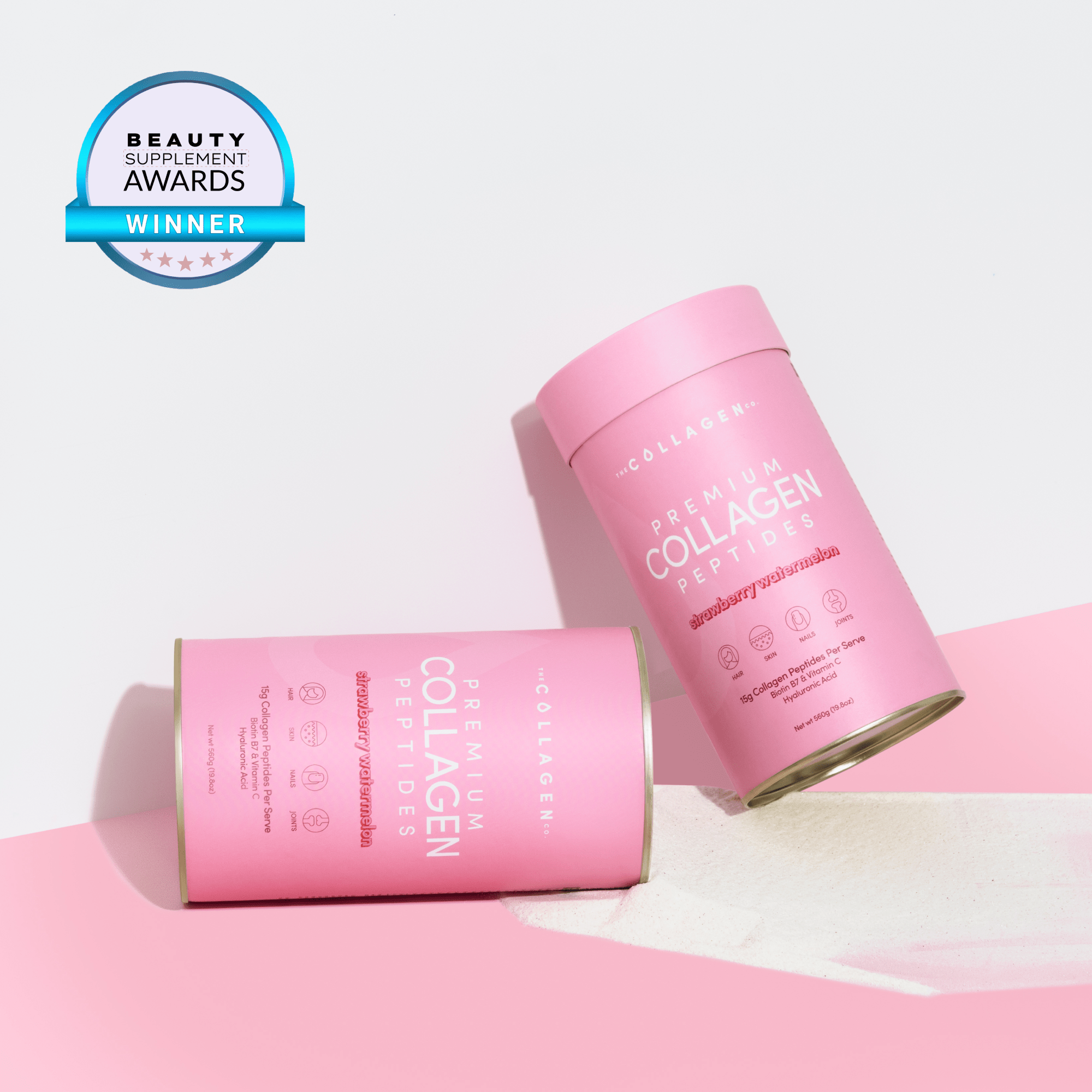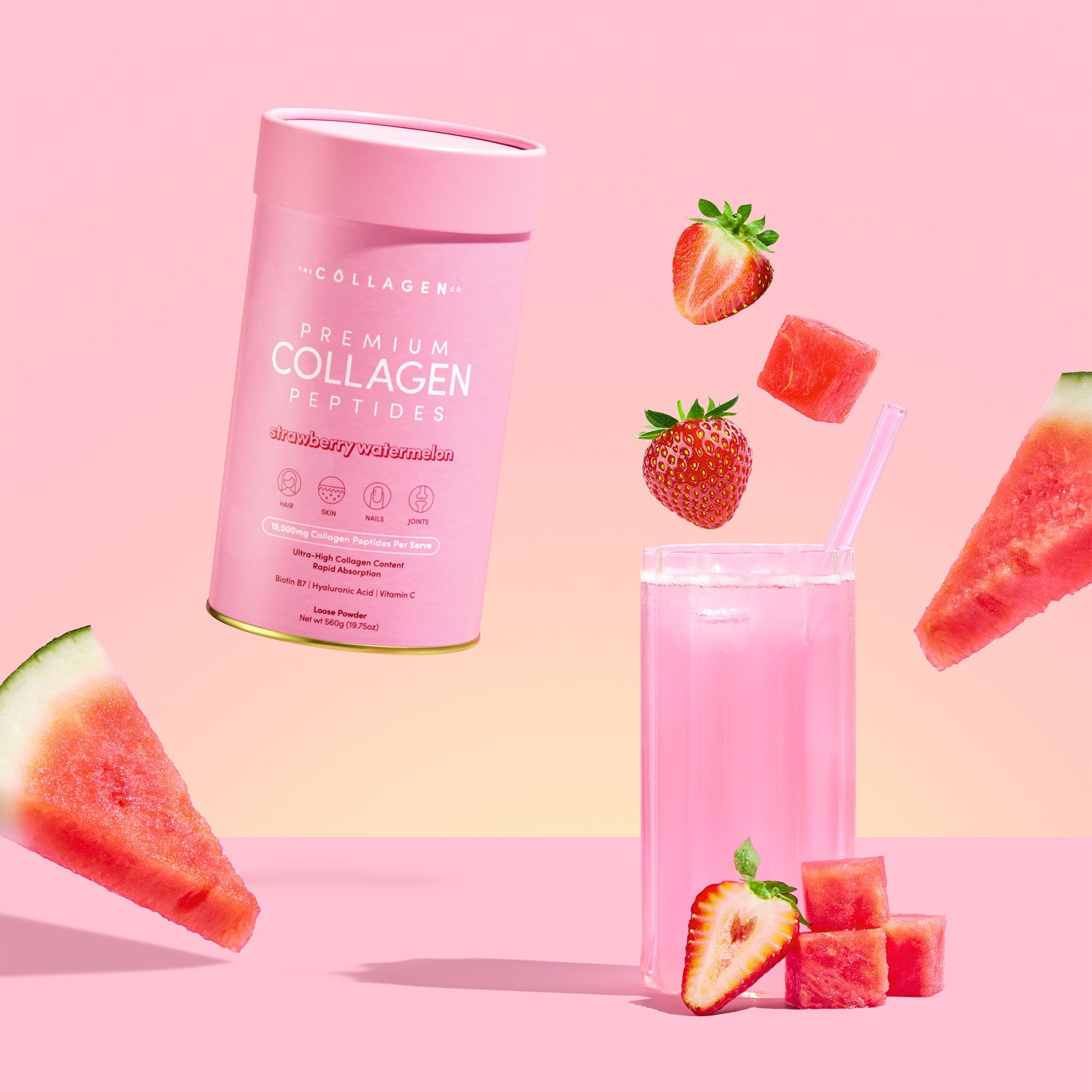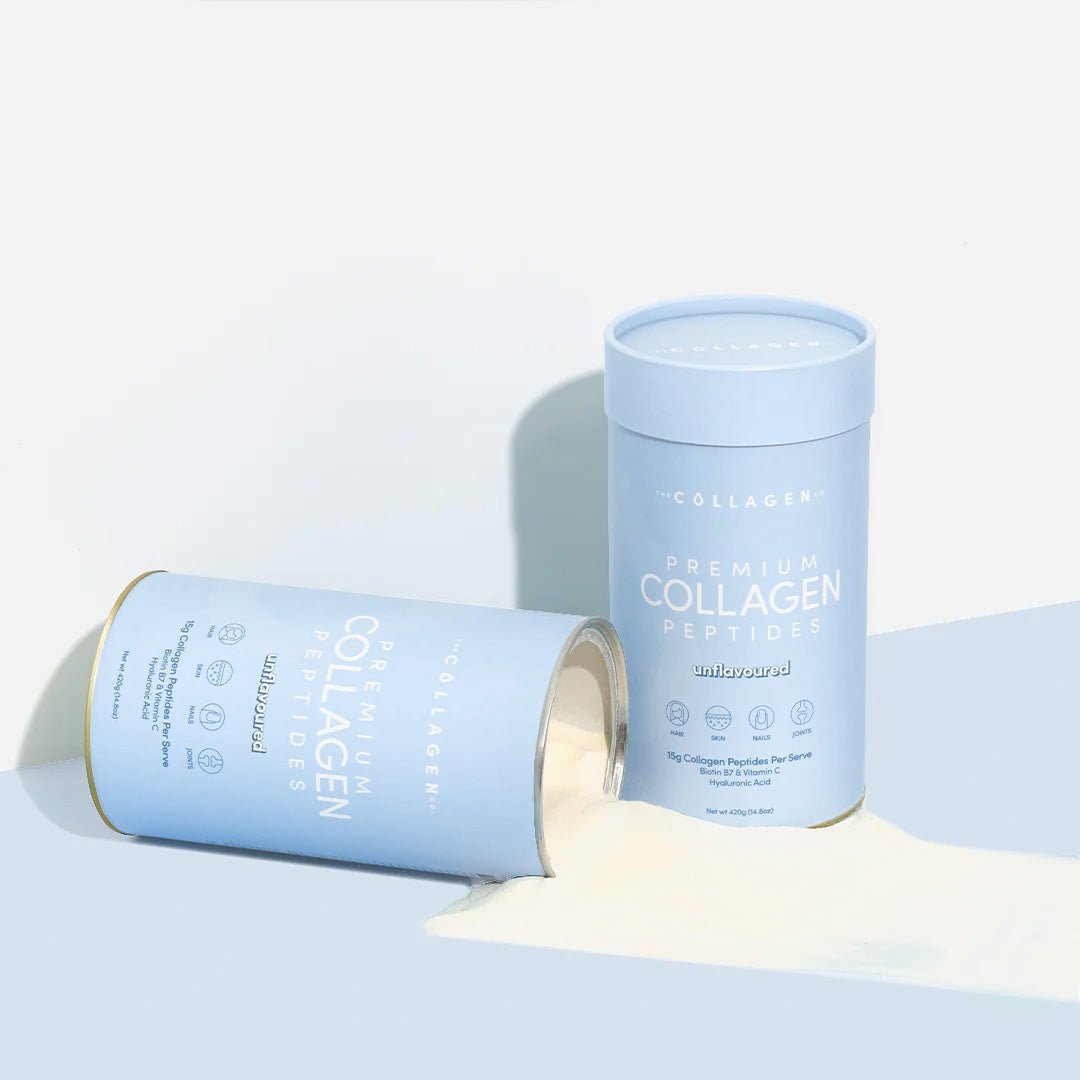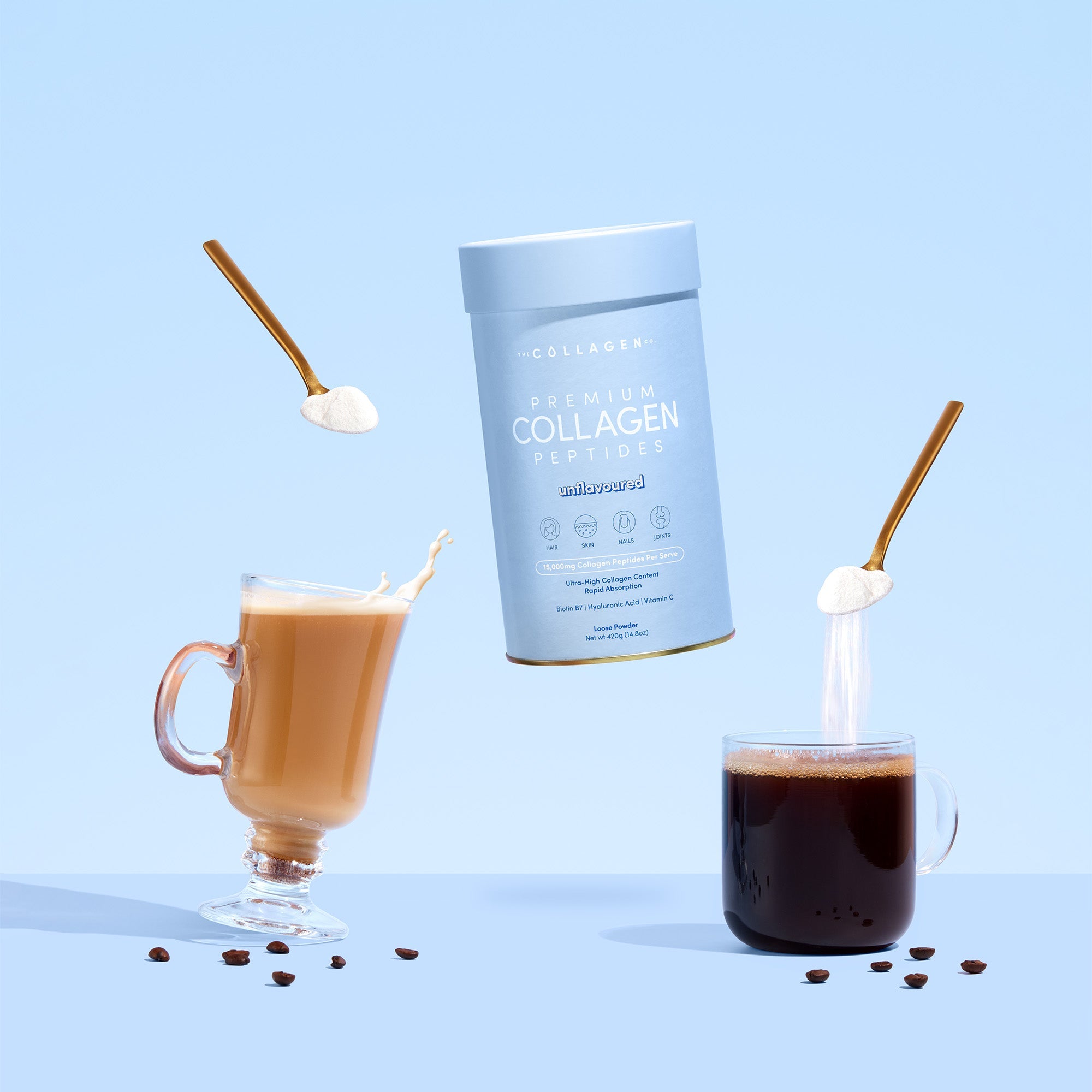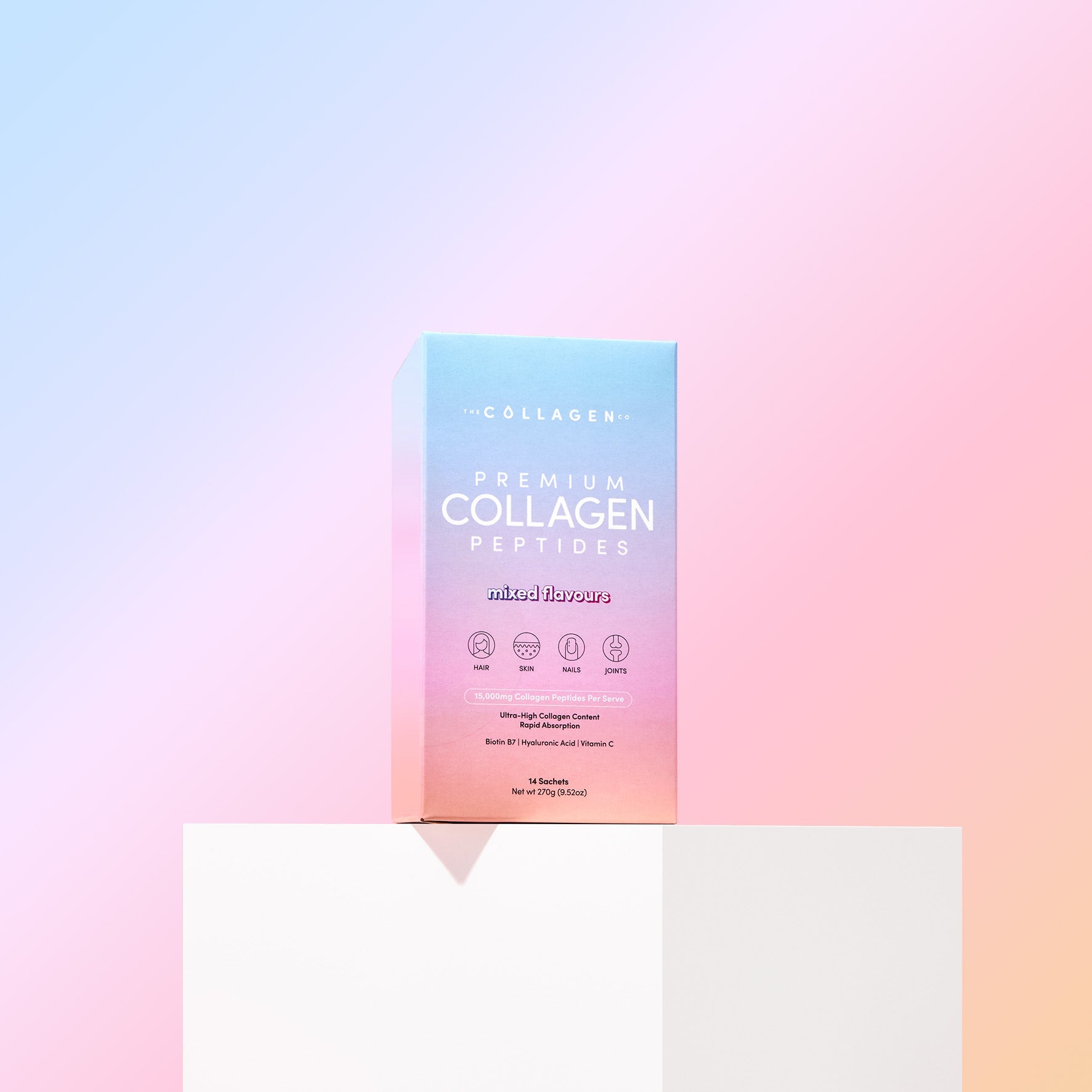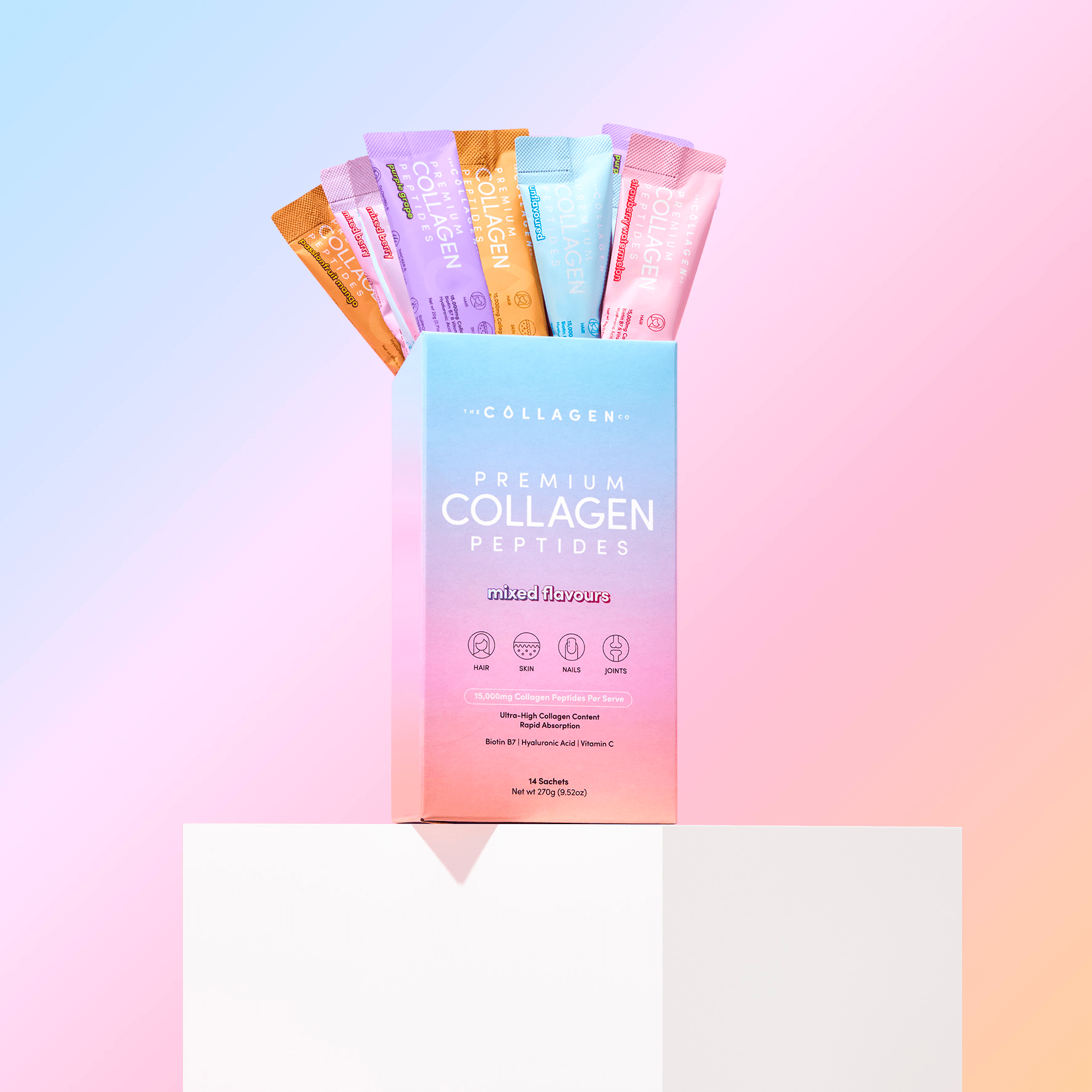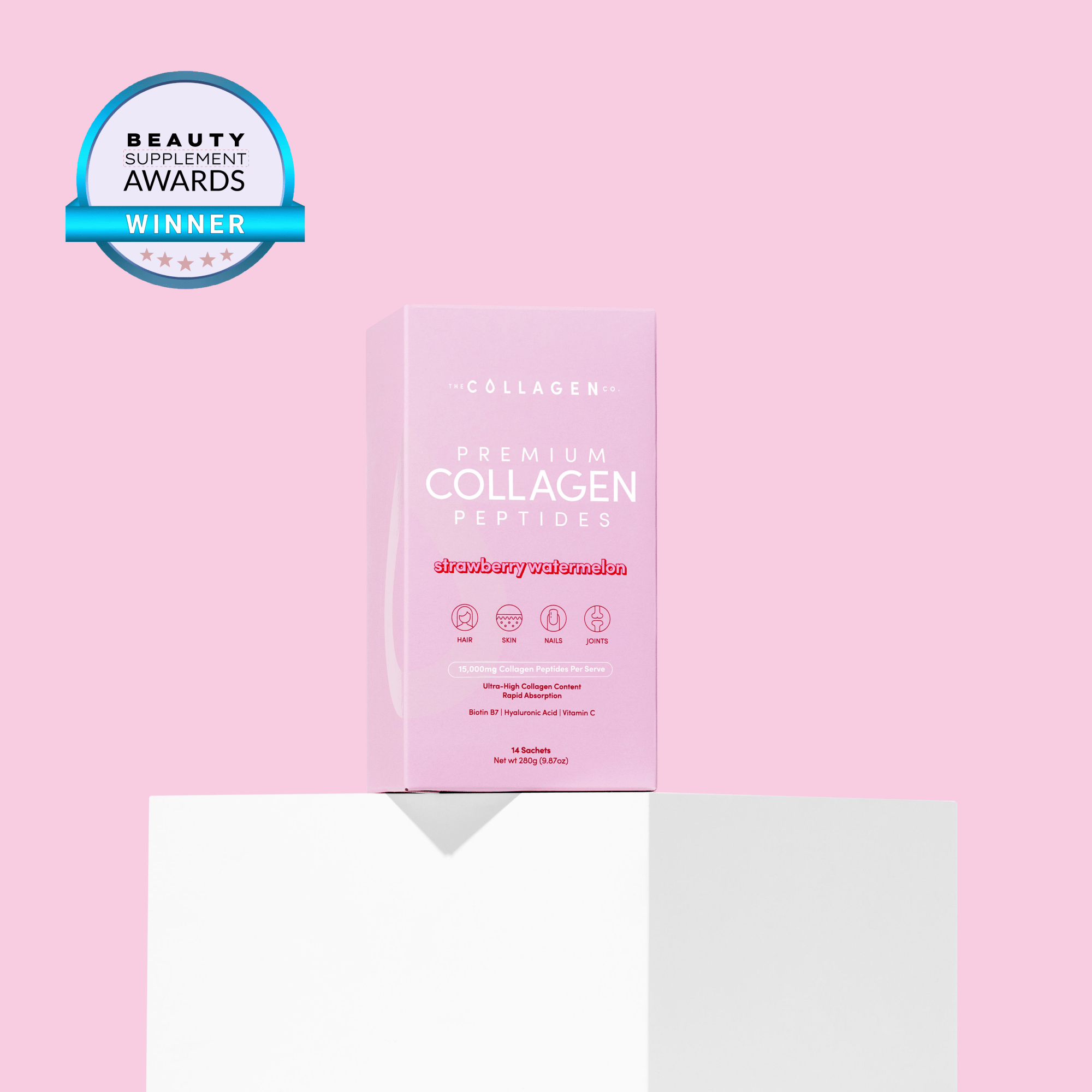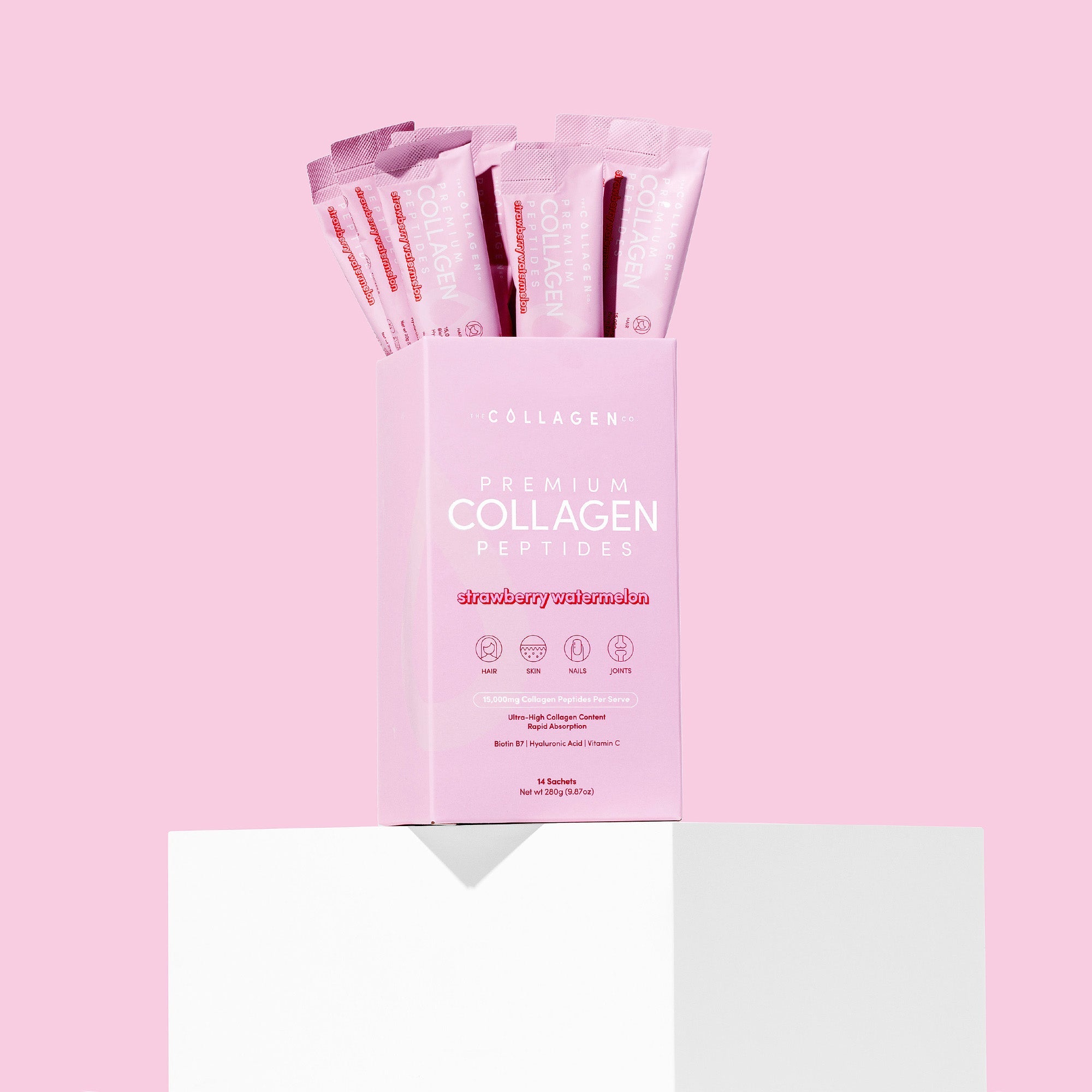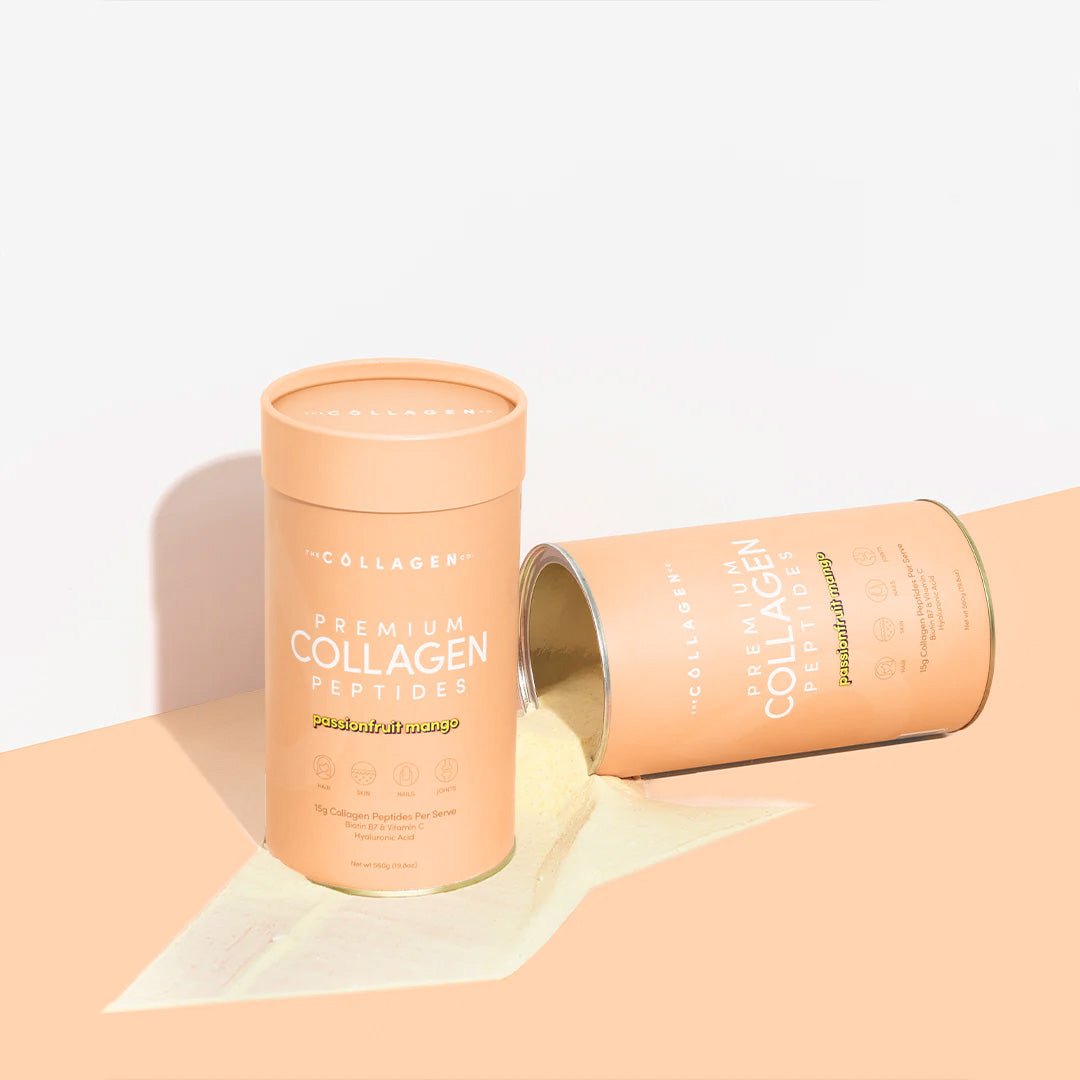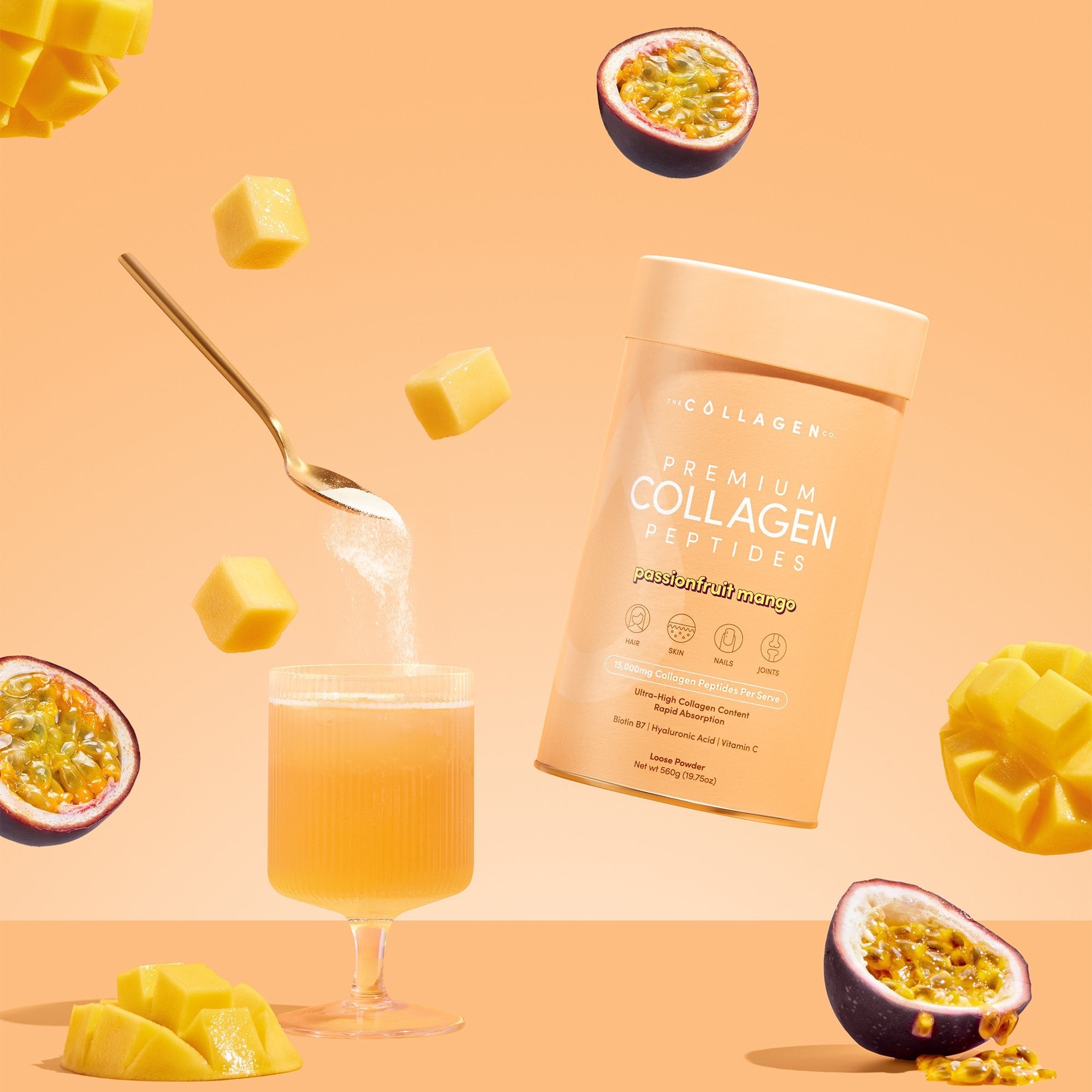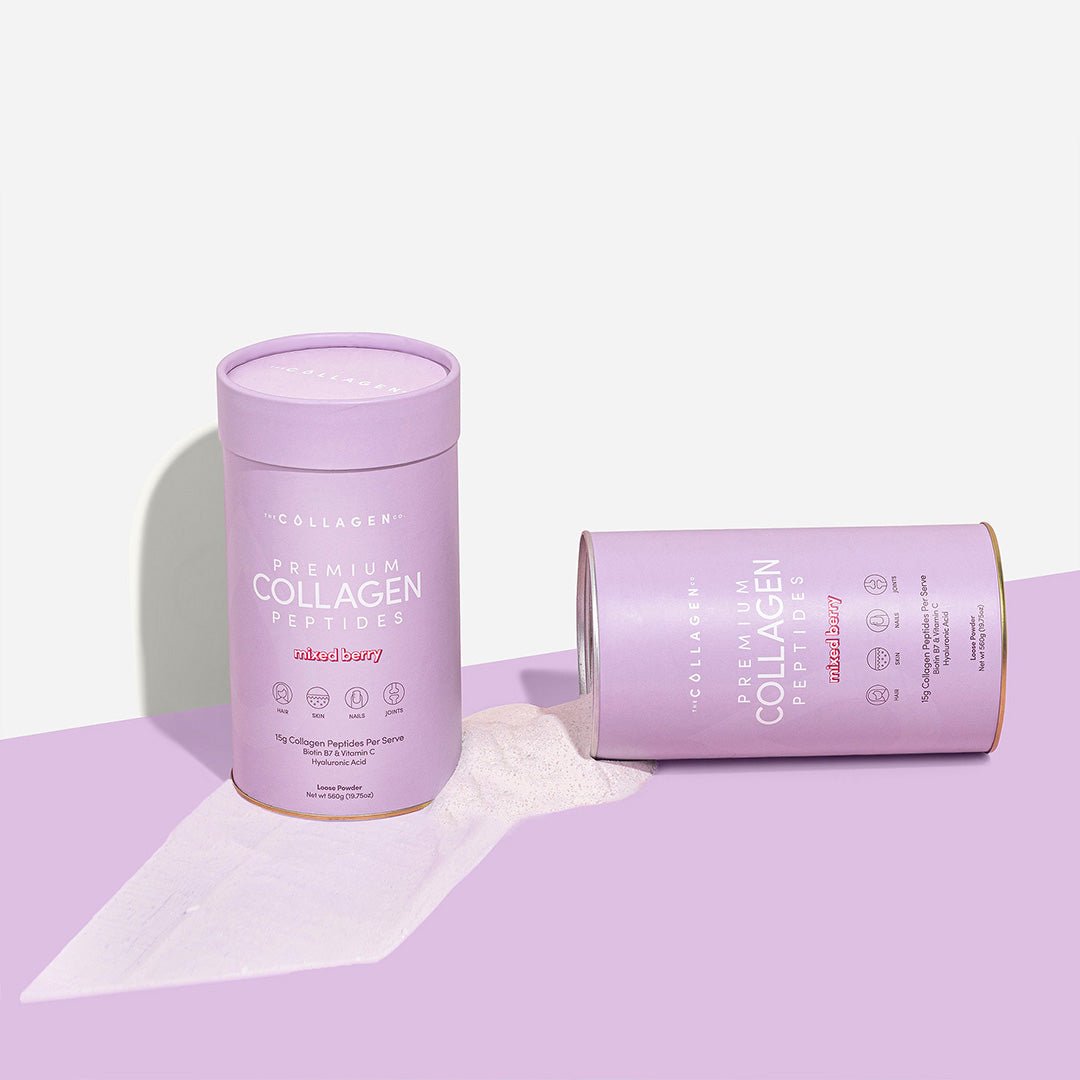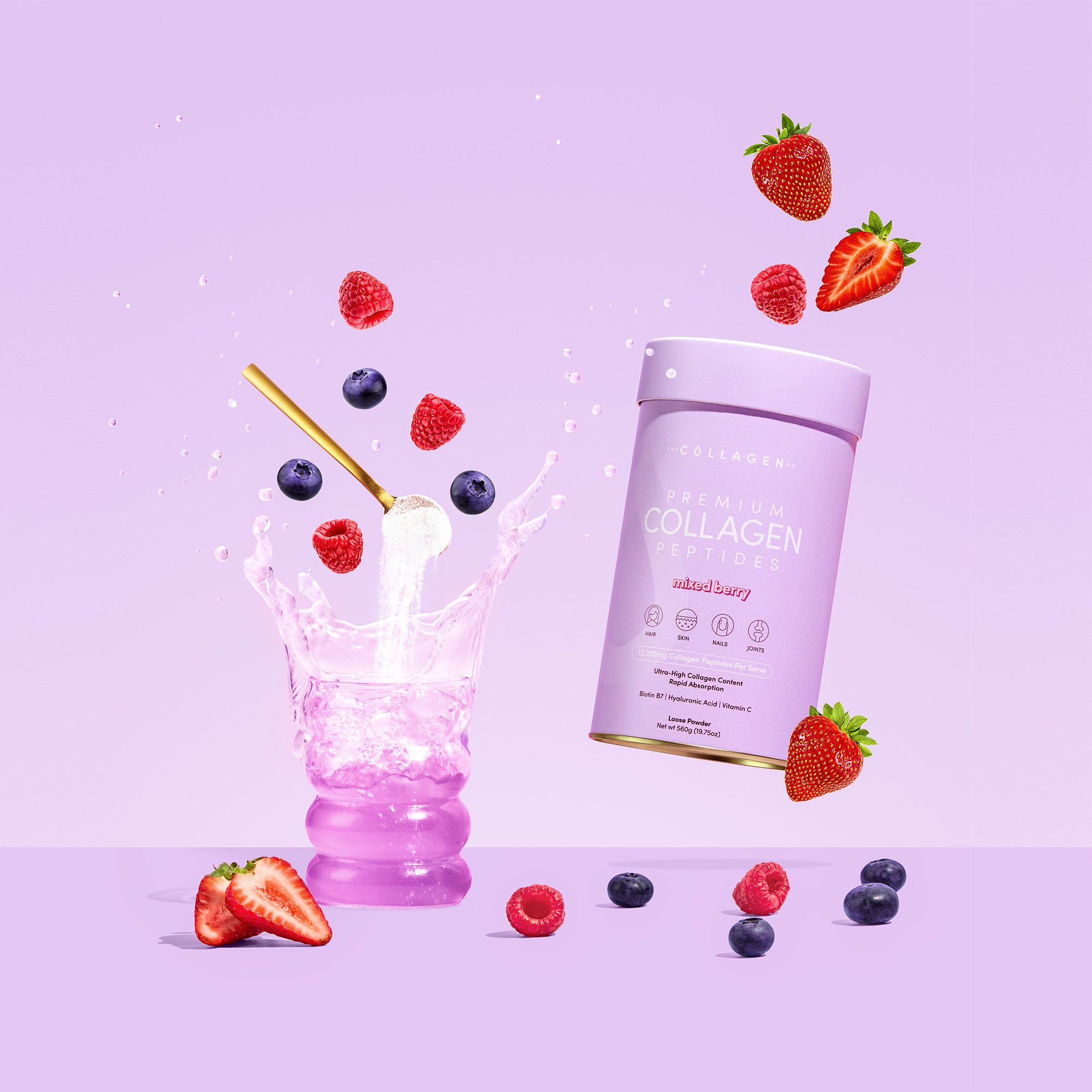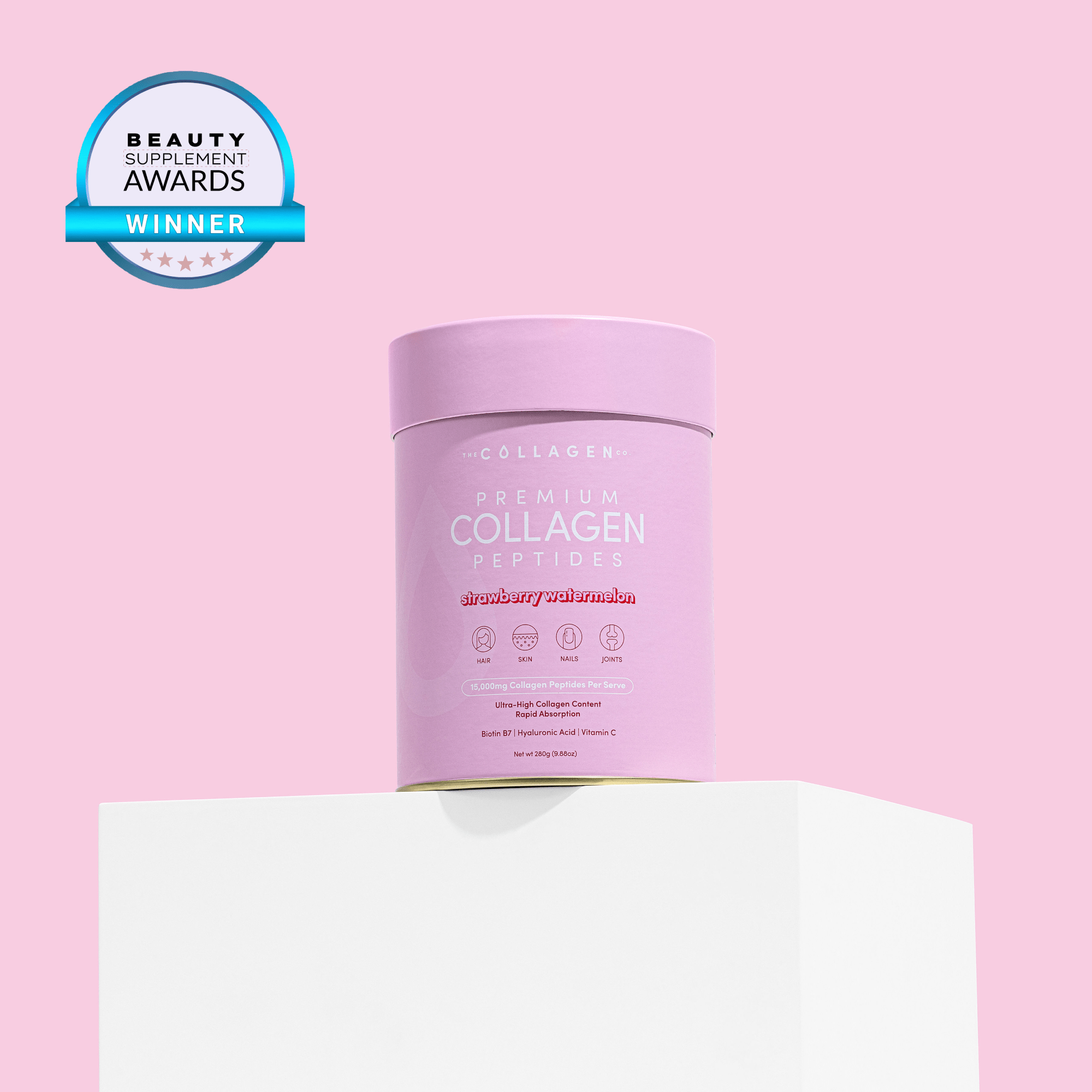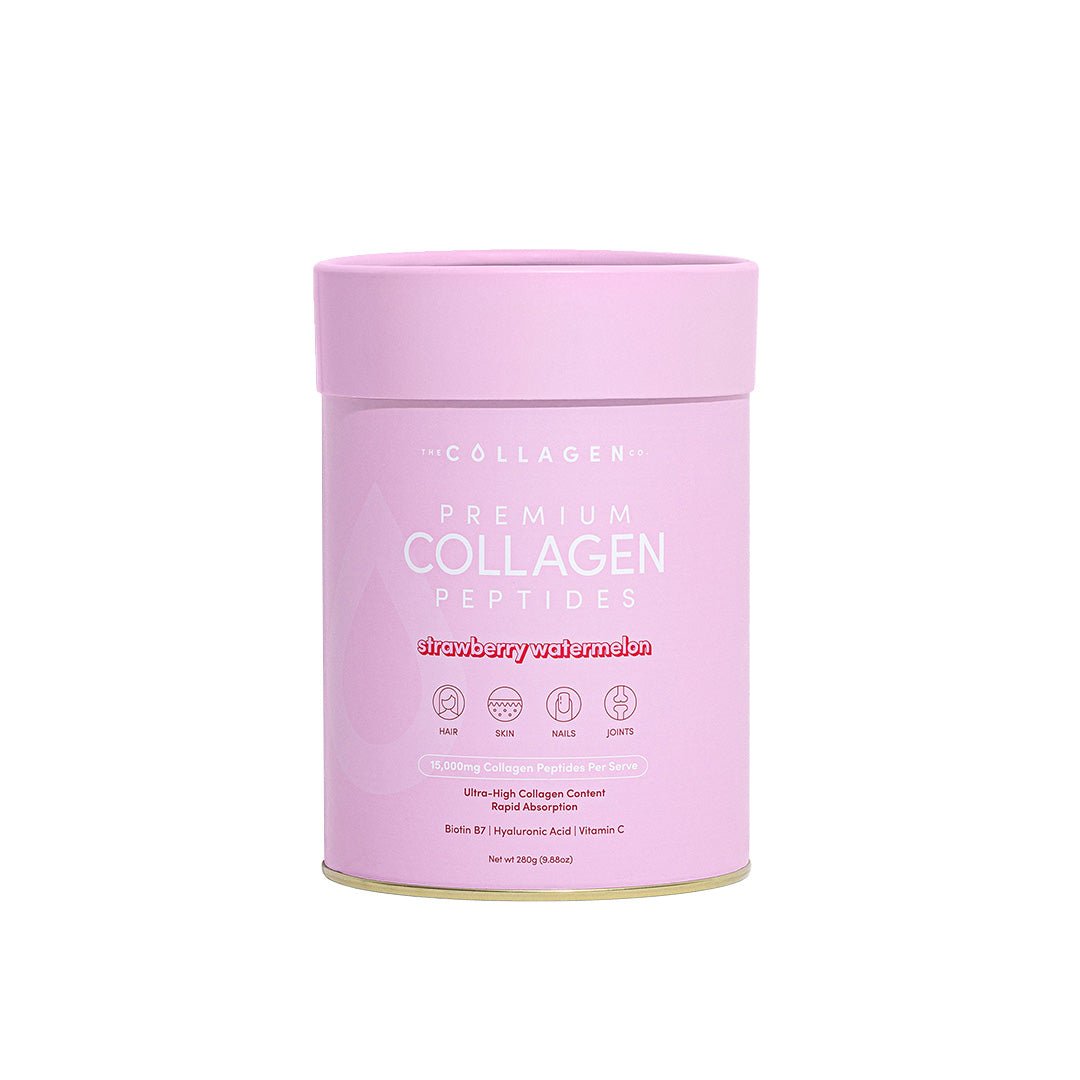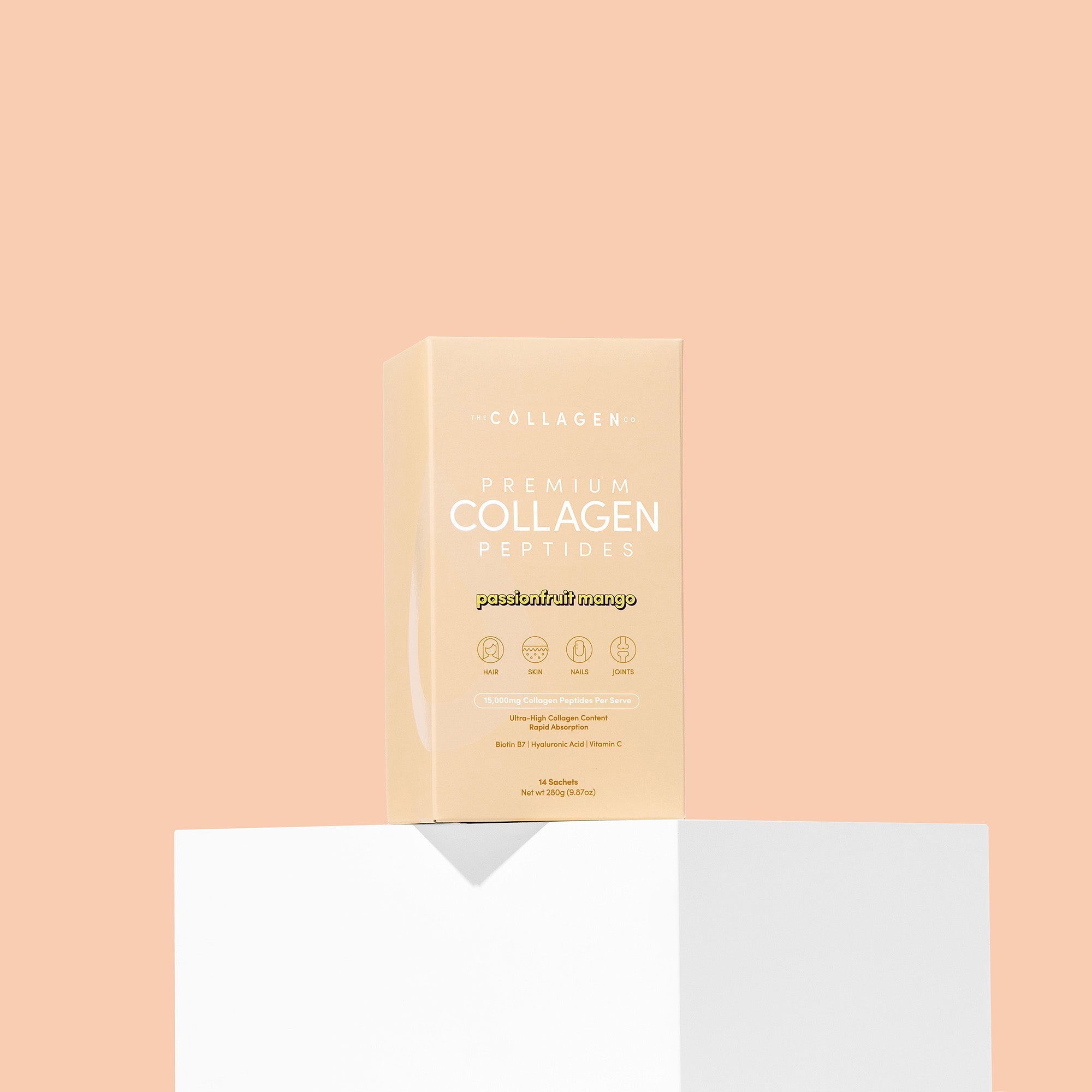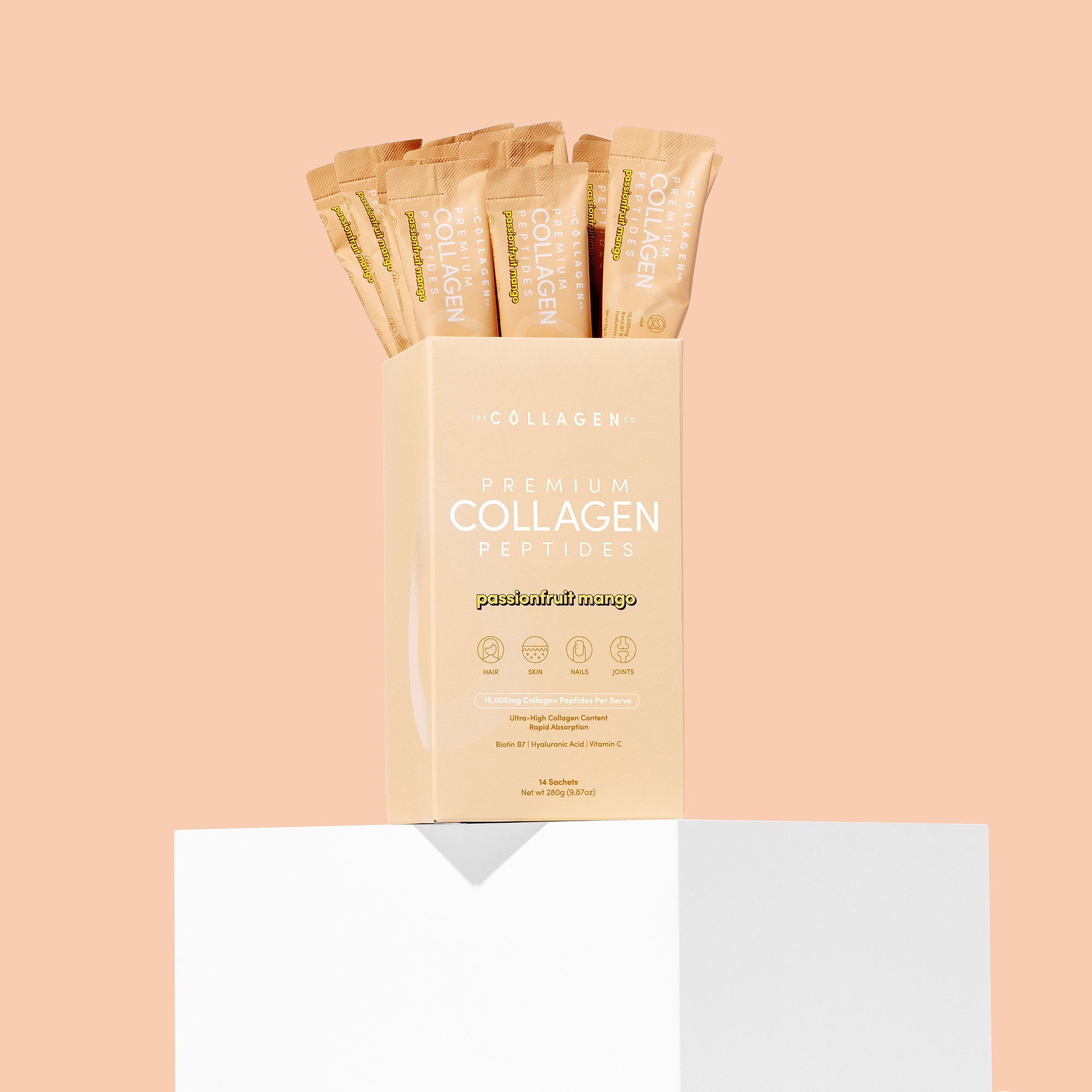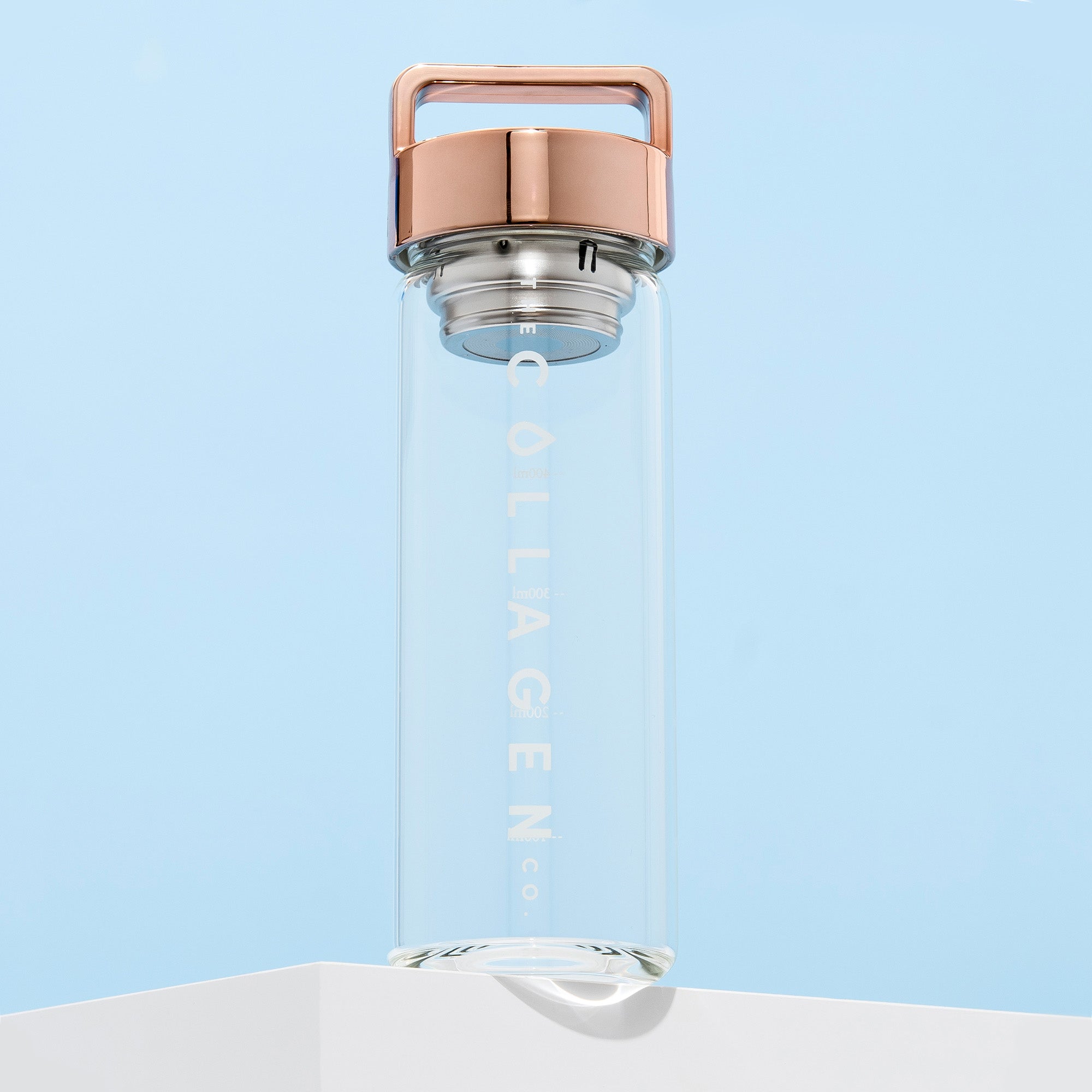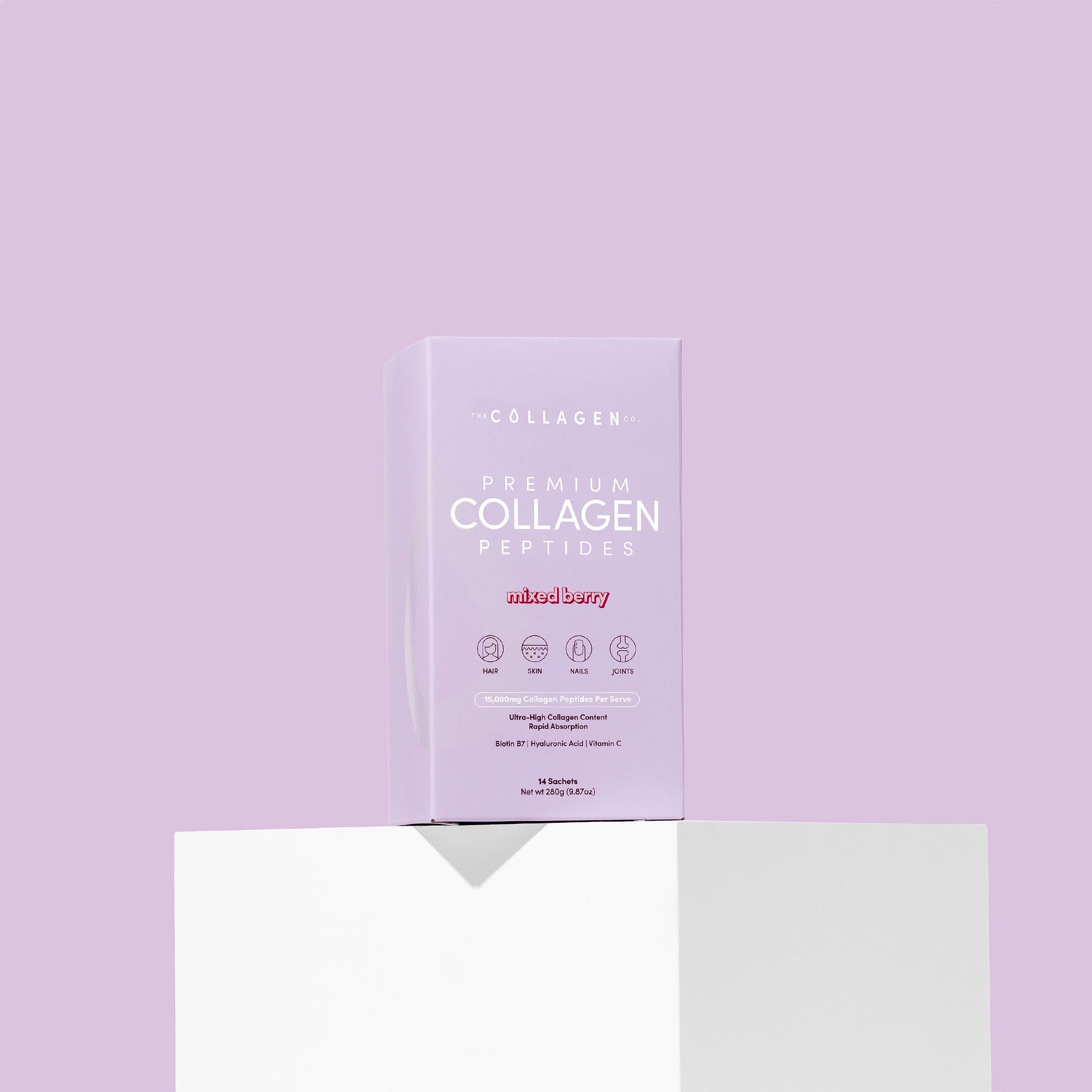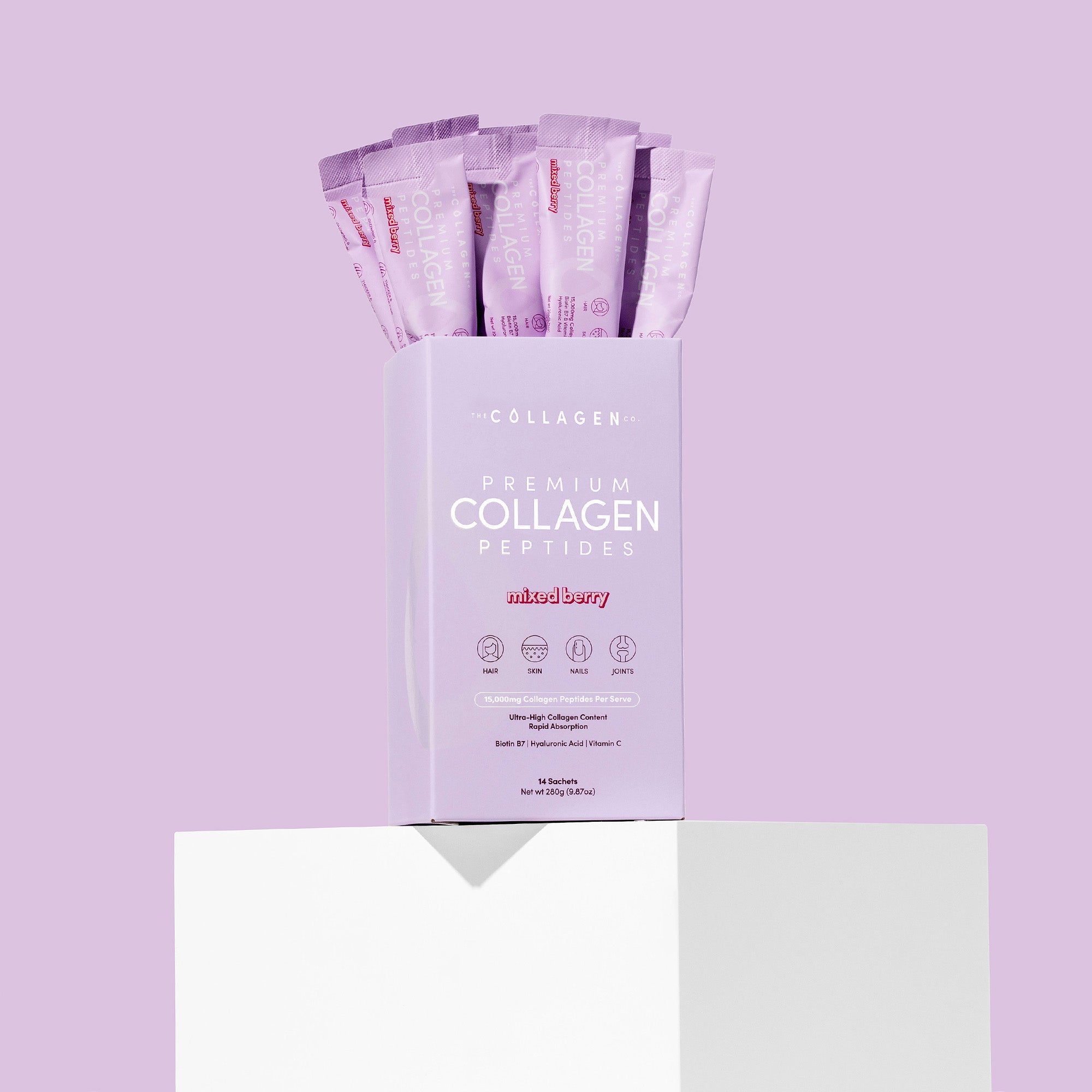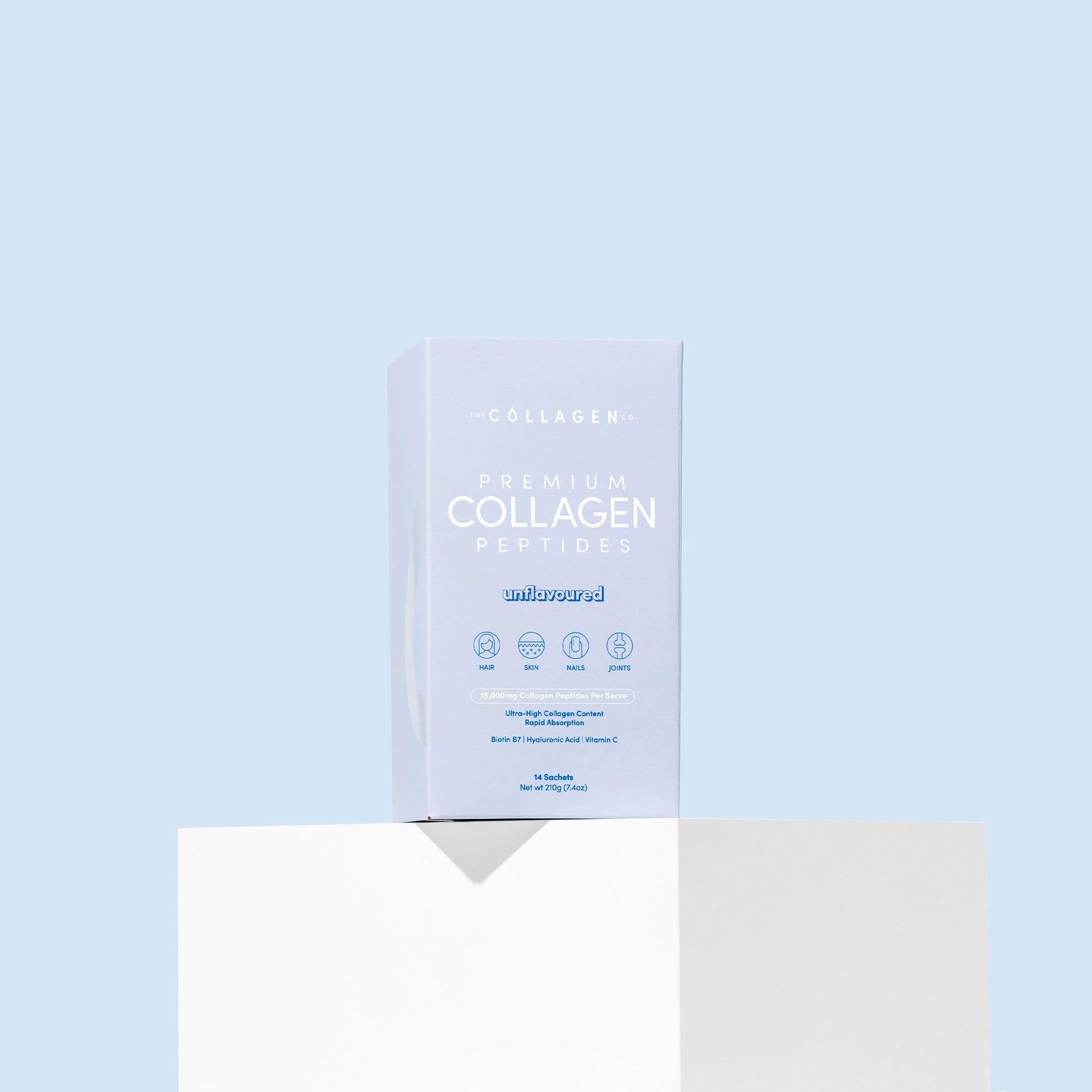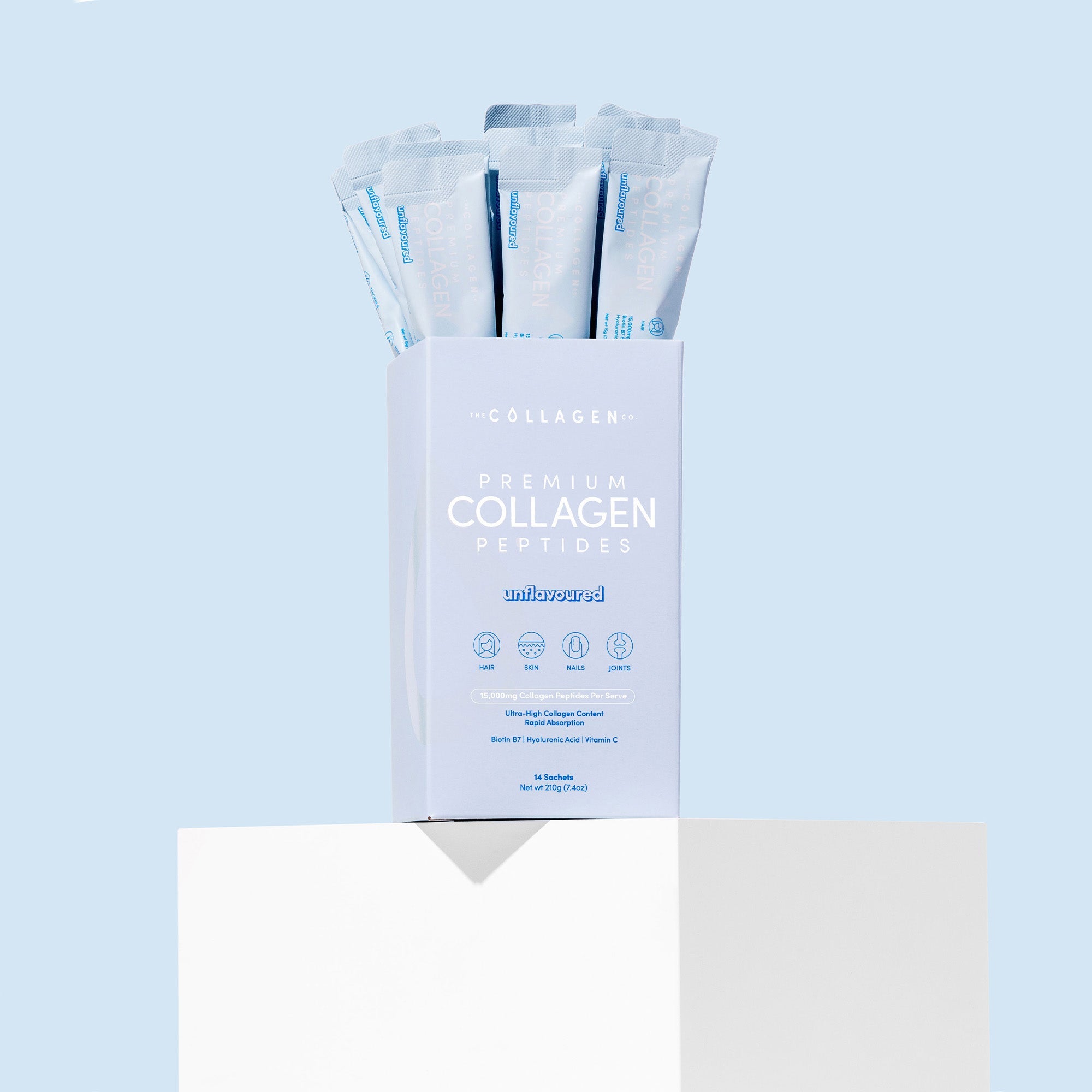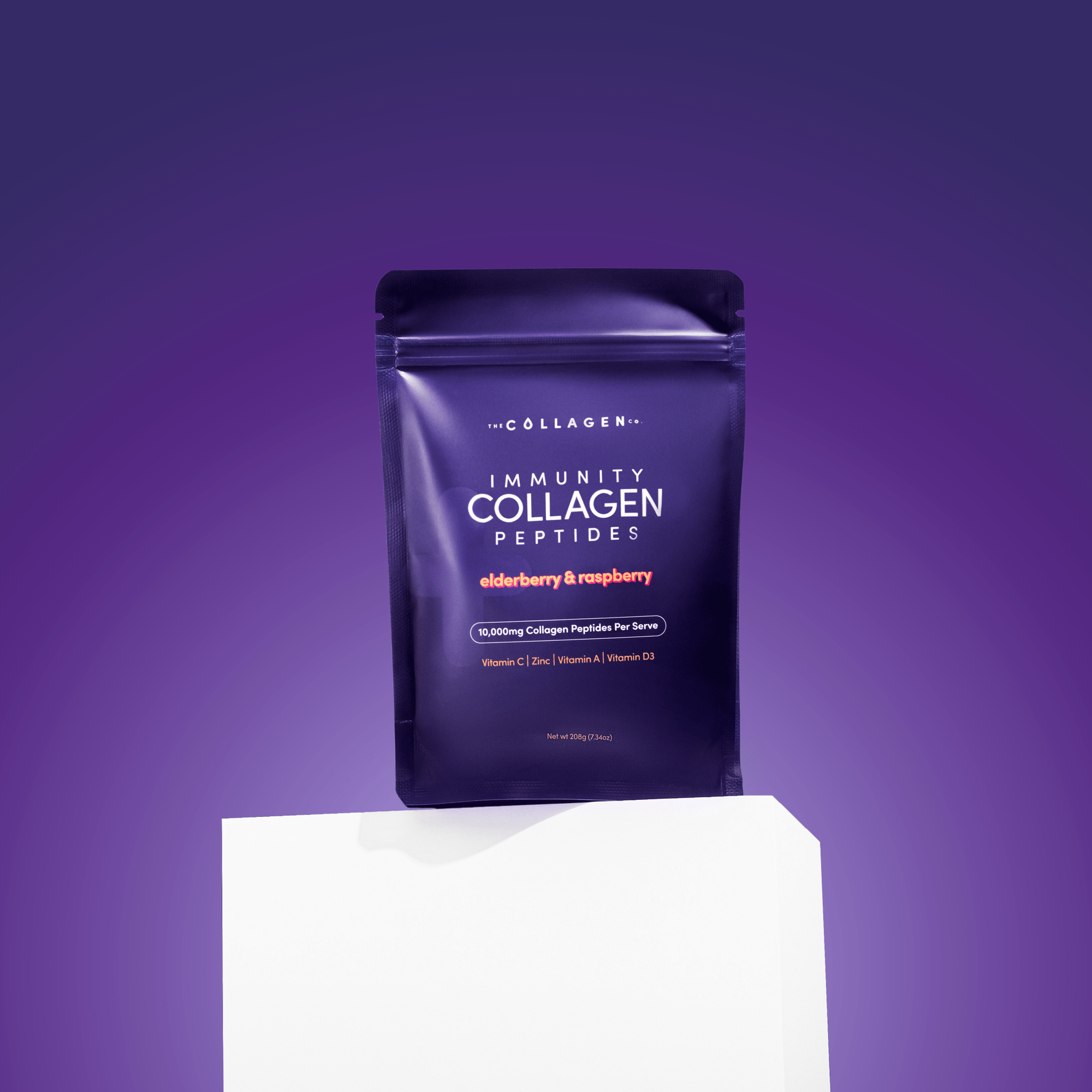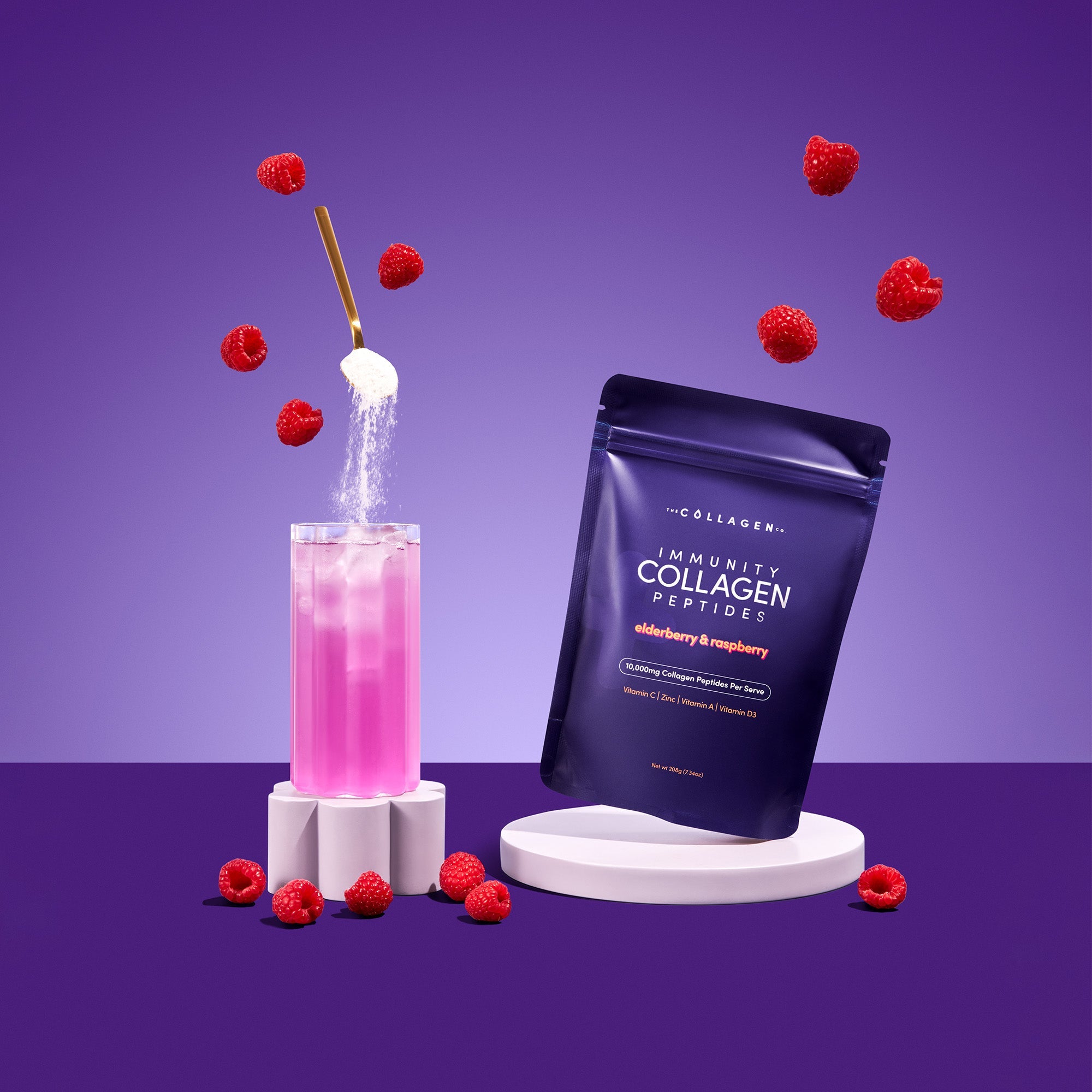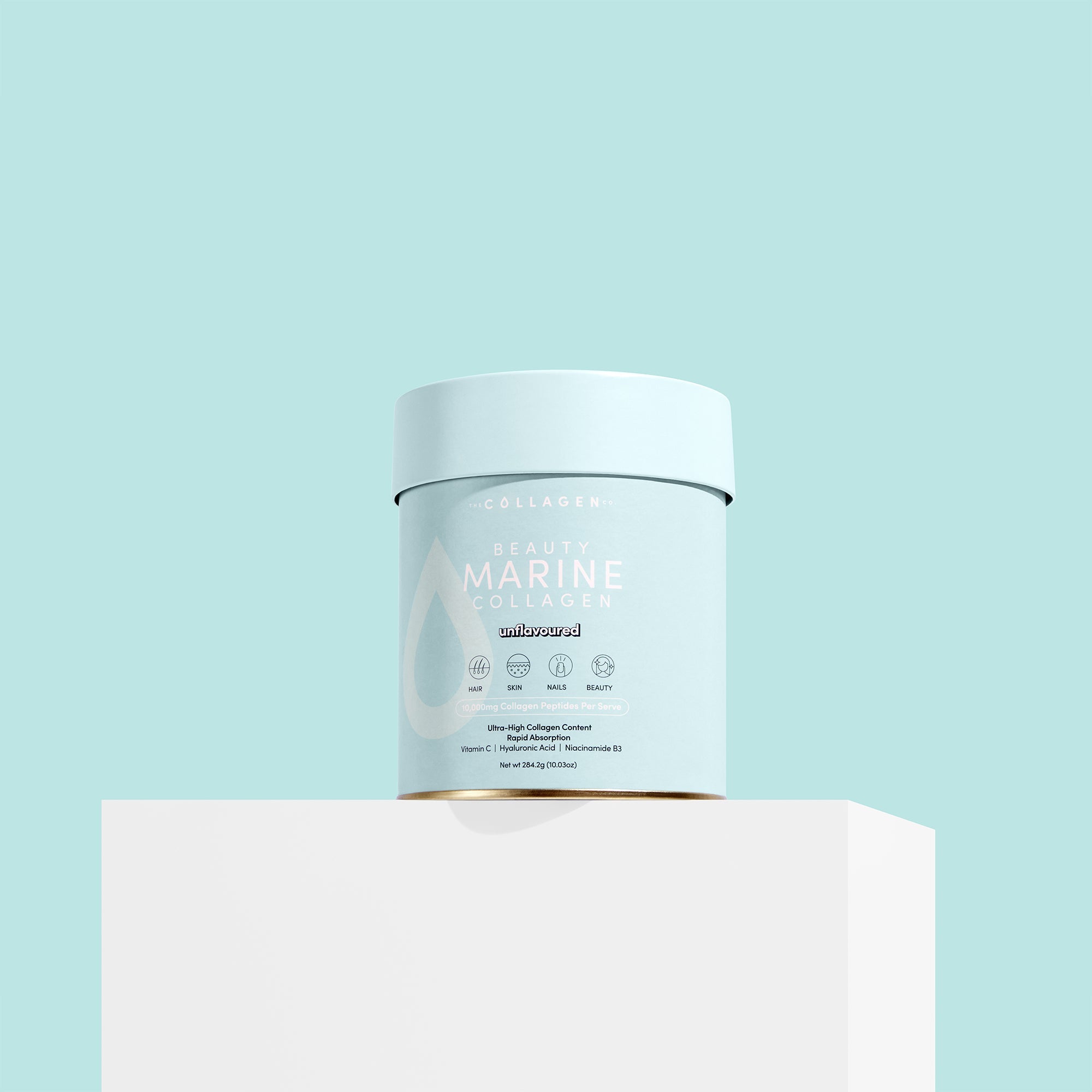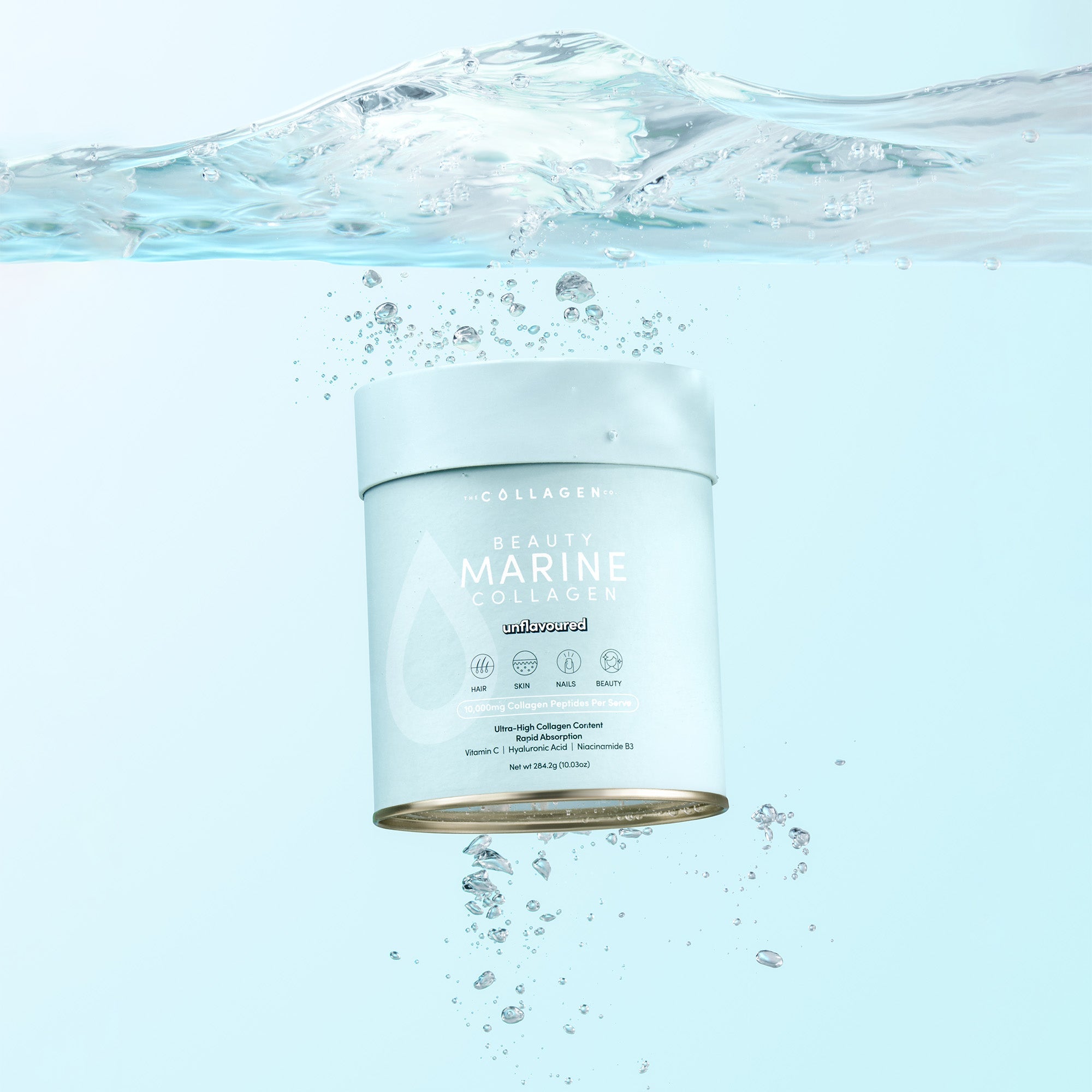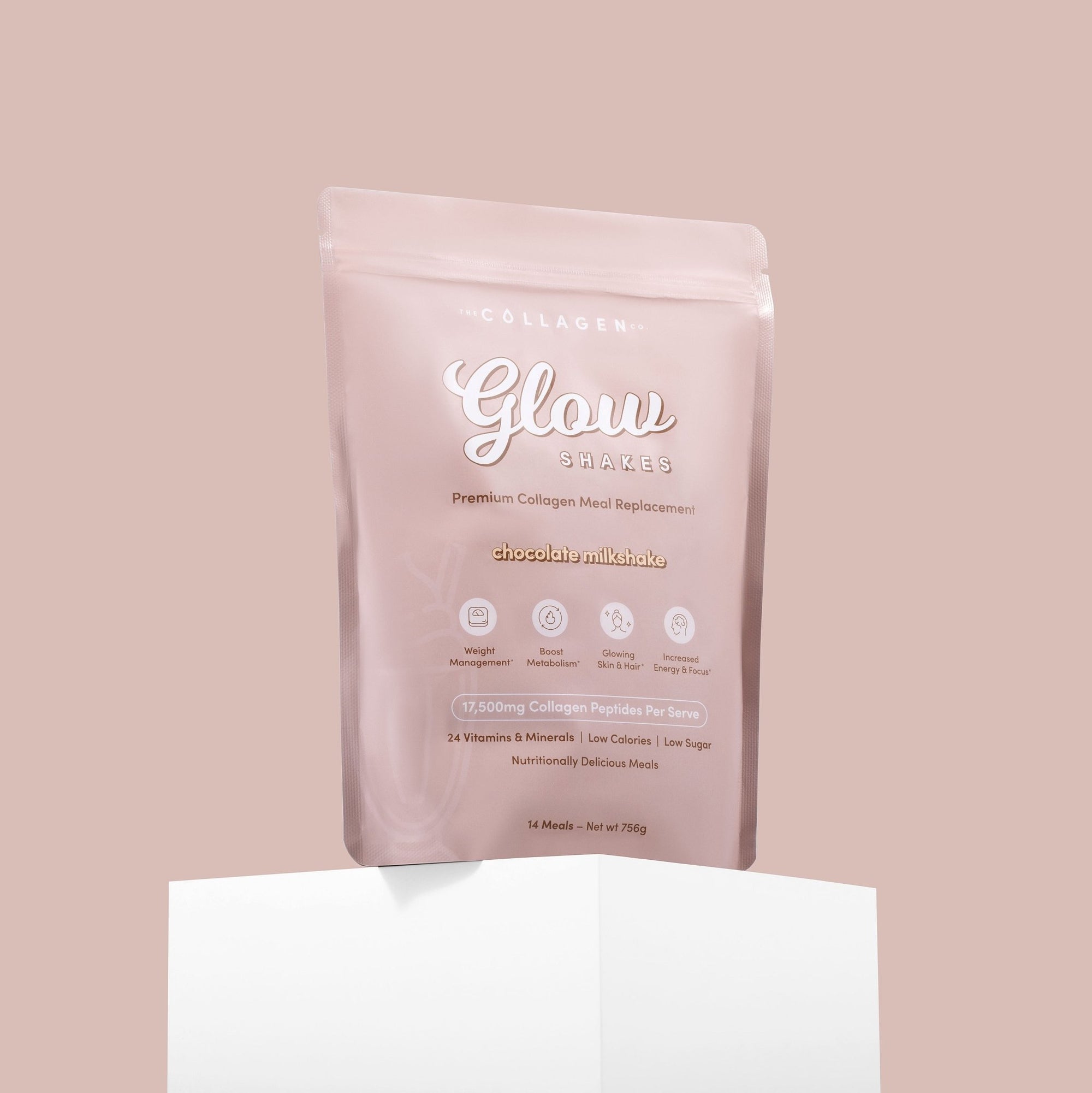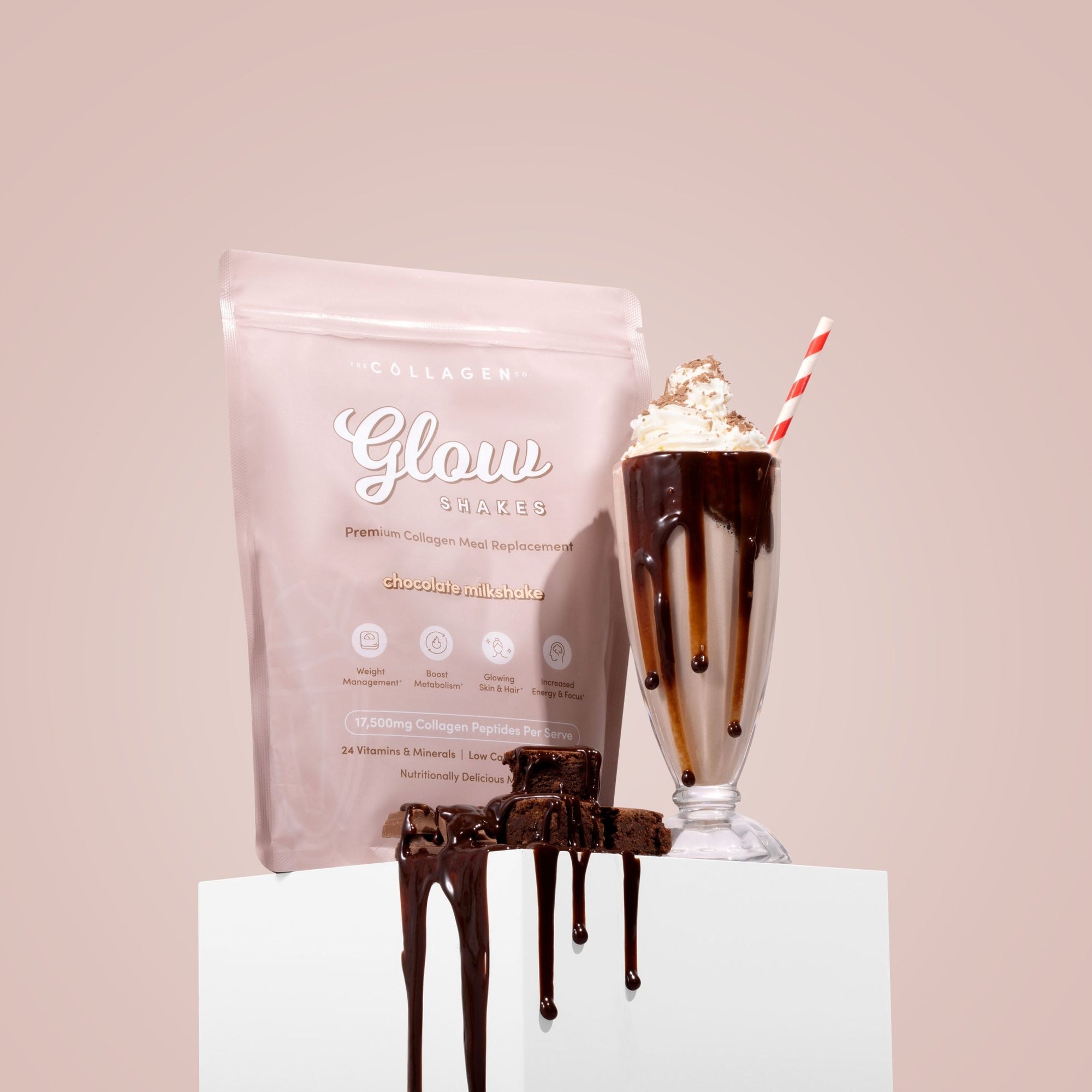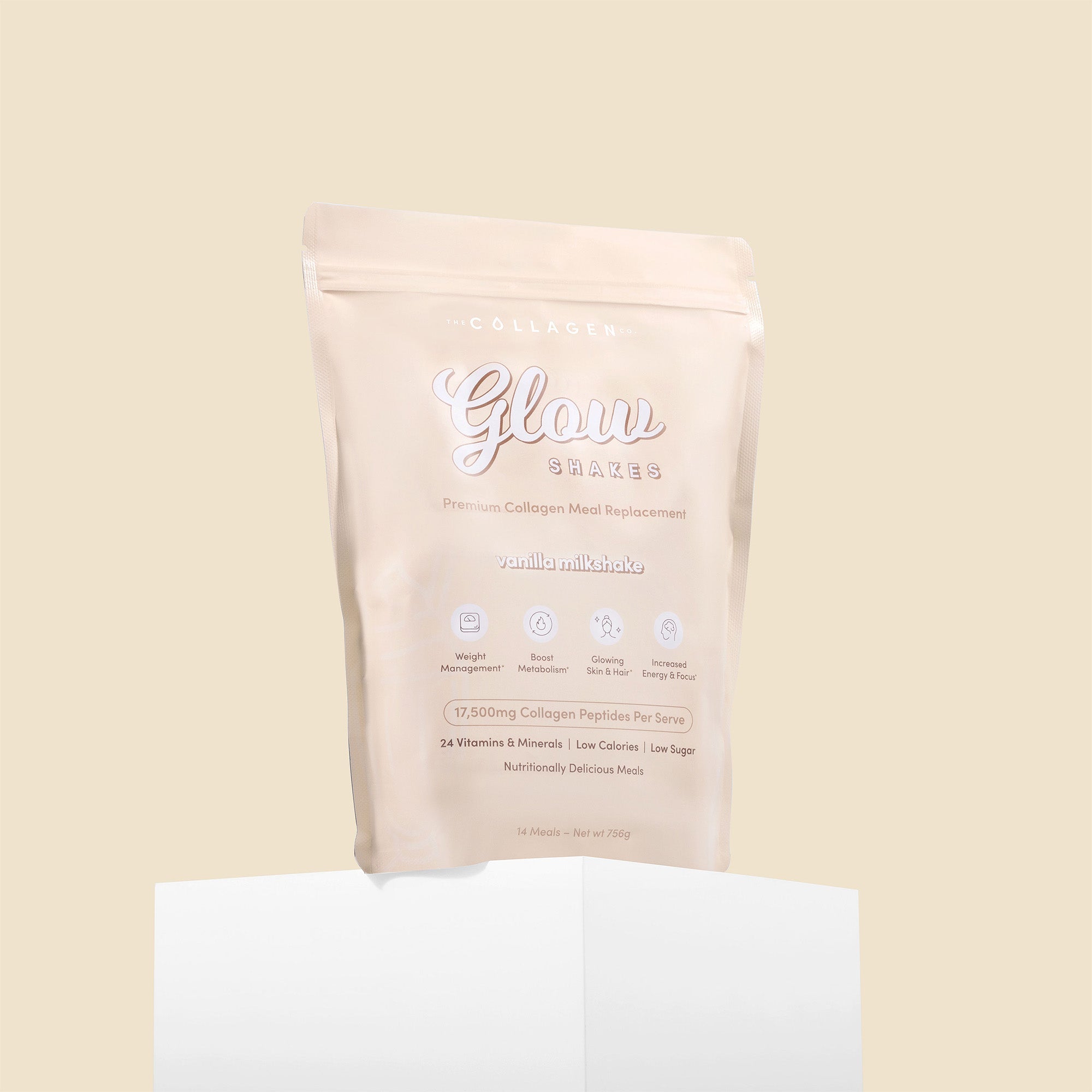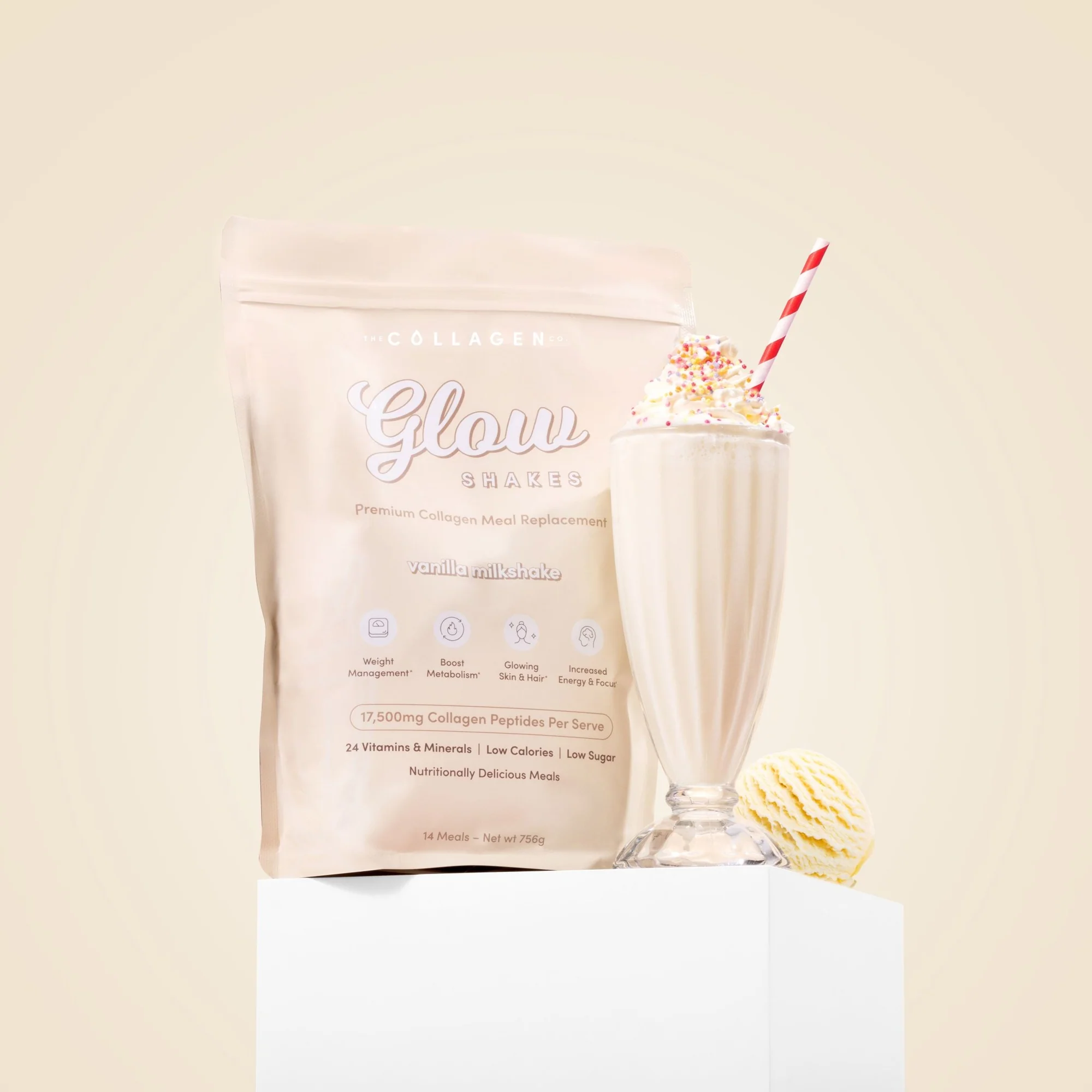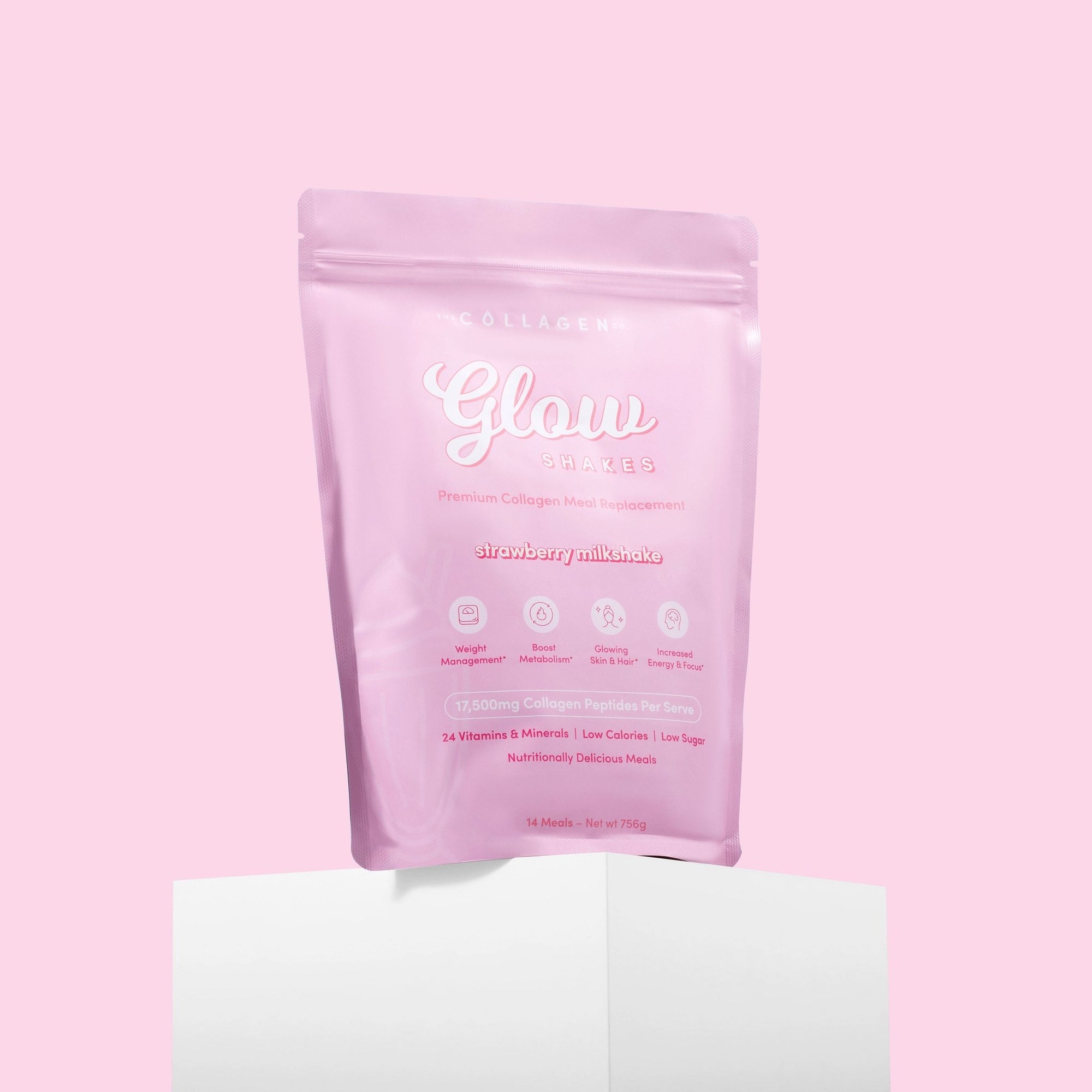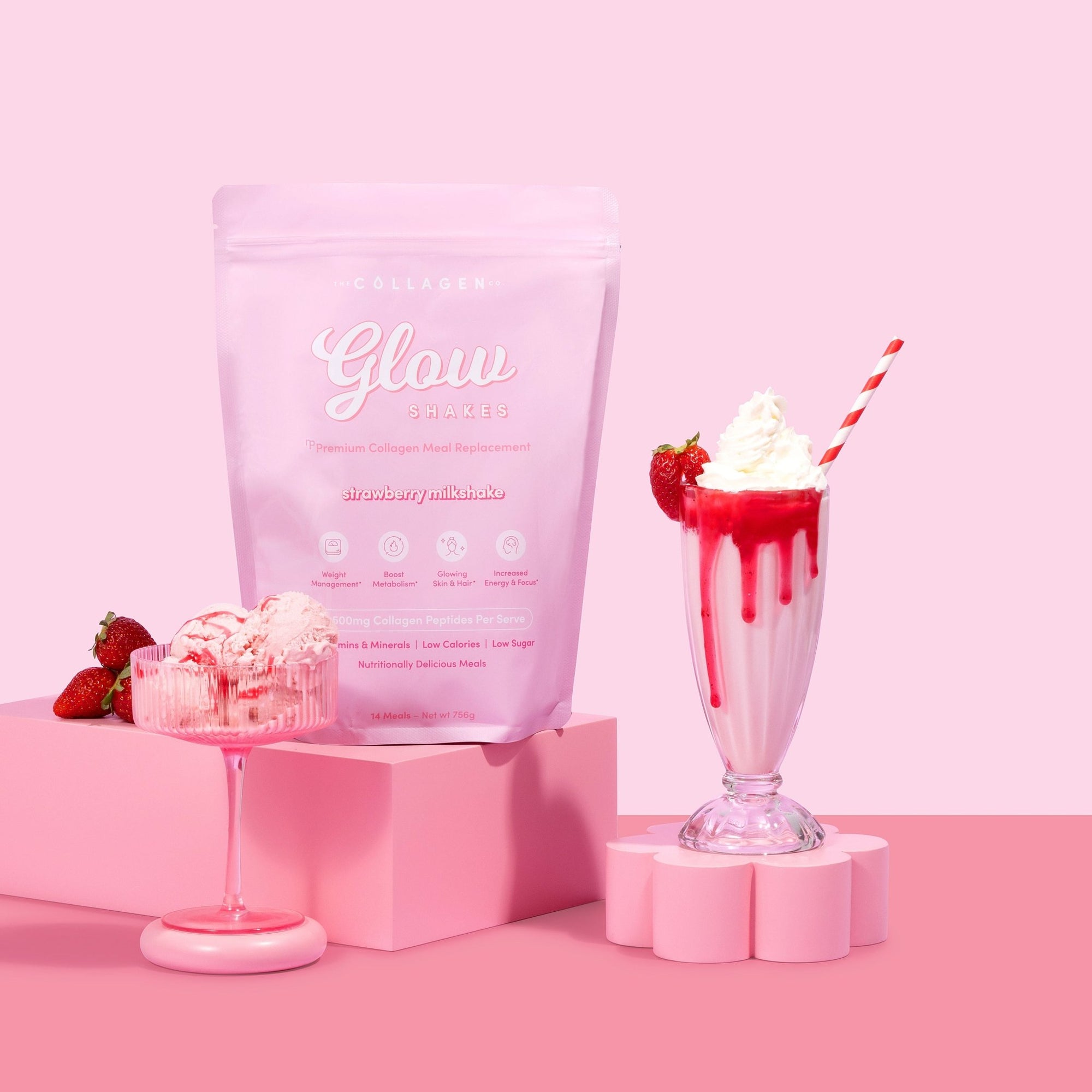Clinical Trials Showcasing the Efficacy of Collagen Peptides for Skin Health
Posted July 2024

“Collagen peptides do wonders for the skin.”
It’s a standard claim you see repeated, ad nauseam, on blogs and product descriptions of companies selling collagen peptides. But where’s the proof? Like, actual human clinical trials instead of customer testimonials and before-and-after collagen transformations*?
*Of course, we’re not saying that anecdotal evidence is 100% unreliable — it’s just that, on the evidence hierarchy, it’s definitely ranked lower than clinical trials.
At The Collagen Co., we’re all about doing things differently. In a good way. That’s why we’ve curated a comprehensive list of clinical trials showcasing the efficacy of collagen peptides for skin health. And don’t worry; we’ve broken it into easy-to-understand terms (i.e., no confusing jargon!)
Collagen peptides for ageing skin
Some crucial background information on collagen:
- Collagen is one of the most abundant proteins in the human body that helps form your skin, bones, muscles, tendons, and ligaments.
- Collagen is what gives your skin that plump, youthful look.
- Collagen levels fall with age, starting in your 20s, due to a combination of intrinsic aging and environmental factors, such as UV exposure and heavy alcohol consumption. The result: fine lines, wrinkles, and sagginess.
So, hydrolysed collagen peptides are purportedly able to reverse skin aging signs by:
- Increasing the number and activity of collagen-producing fibroblasts in the skin (translation: promote your body’s natural collagen production)
- Acting as a potent antioxidant that counters free radical damage, which accelerates natural collagen loss
… But do they? The following clinical trials studying collagen peptides’ effect on ageing skin say, “Yes”.
|
Research |
About |
Results |
|
Researchers analyzed 8 studies using hydrolysed collagen peptides for the treatment of skin aging. |
They concluded oral collagen supplements “increase skin elasticity, hydration, and dermal collagen density”. |
|
|
Researchers randomly assigned 50 participants to 2 groups: 2. 10 grams of placebo powder daily |
After 12 weeks, the hydrolysed marine collagen powder group participants reported greater percentage improvements in overall skin, wrinkle, elasticity, hydration, radiance, and firmness scores than those in the placebo group. |
|
|
Researchers analyzed 19 clinical trials that evaluated oral hydrolysed collagen supplementation’s effect on skin aging. |
The researchers found that the “ingestion of hydrolysed collagen for 90 days is effective in reducing skin aging, as it reduces wrinkles and improves skin elasticity and hydration”. |
|
|
Researchers analyzed 26 randomized controlled trials to assess the effects of hydrolysed collagen supplementation on skin hydration and elasticity. |
Hydrolysed collagen supplementation significantly improved skin hydration and elasticity compared to the placebo group. |
Collagen peptides for skin with atopic dermatitis
Atopic dermatitis, also known as eczema, is a chronic disease that causes inflammation, redness, and skin irritation.
It’s characterized by an itching, oozing rash that can cover a large percentage of the skin, and the constant itch can be extremely unbearable.
While scientists still don’t know exactly what causes atopic dermatitis, they know that changes in the skin's protective layer (e.g., gene mutations, problems with the immune system, and exposure to certain things in the environment) can cause it to lose moisture.
This can cause the skin to become dry, driving up inflammation, which may directly trigger itch sensations that cause scratching — leading to a never-ending cycle of inflammation and itch.
Because of collagen peptides’ hydrating and anti-inflammatory effects, many think its supplementation could benefit atopic dermatitis. But what does the research say? Let’s take a look.
|
Research |
About |
Results |
|
Researchers randomly assigned 50 participants to 2 groups: |
After 12 weeks, participants who took hydrolysed collagen peptides daily exhibited improved skin moisture and enhanced skin barrier function than those in the placebo group. |
|
|
Researchers randomly assigned 39 participants to 2 groups: |
After 8 weeks, participants who took hydrolysed collagen peptides daily saw a significant improvement in mean stratum corneum hydration than those in the placebo group. |
“Wait,” you might be wondering, “None of those studies link collagen peptides and atopic dermatitis directly?” And you’re right.
But despite this lack of direct evidence, daily collagen peptide supplementation remains a promising adjuvant supportive option for those with atopic dermatitis. That’s because it fortifies the skin barrier and prevents excessive transepidermal water loss, the key contributor to inflammation.
How else can you care for your skin if you have eczema? Here are a few tips to check out.
Collagen peptides for cellulite
Cellulite forms when fat cells beneath your skin push up against your skin’s connective tissues (fibrous bands or septa), causing the skin to dimple or pucker.
Can collagen peptides help with cellulite? Yes. They help stimulate increased collagen production in the skin, fortifying your fibrous connective tissue and making it harder for fat cells to successfully “push through” and create dimpling.
In this 2015 study, researchers randomly assigned 105 women with moderate cellulite to 2 groups:
- 2.5 grams of bioactive collagen peptides
- 2.5 grams of placebo
At the end of the study, the researchers concluded that “a regular ingestion of [bioactive collagen peptides] over a period of 6 months led to a clear improvement of the skin appearance in women suffering from moderate cellulite.”
How much collagen peptides for skin health?
Most studies showed results with anywhere between 2.5 to 10 grams of collagen peptides daily.
But it’s worth noting that the quality of your collagen peptides will play a bigger role than the quantity. All research used “hydrolysed” and “bioactive” collagen peptides. But how do you know if the ones you’re eyeing are, too?
Answer: molecular size. Your collagen peptides must be just 2-3 kDa in molecular size.
This way, they’ll retain all their bioactivity and, in turn, efficacy.
FYI, every single product on The Collagen Co. is formulated with quality and quantity in mind — ensuring at least 5 grams of collagen per serving that’s been hydrolysed until they’re just 2-3 kDa in molecular size.
